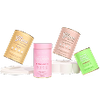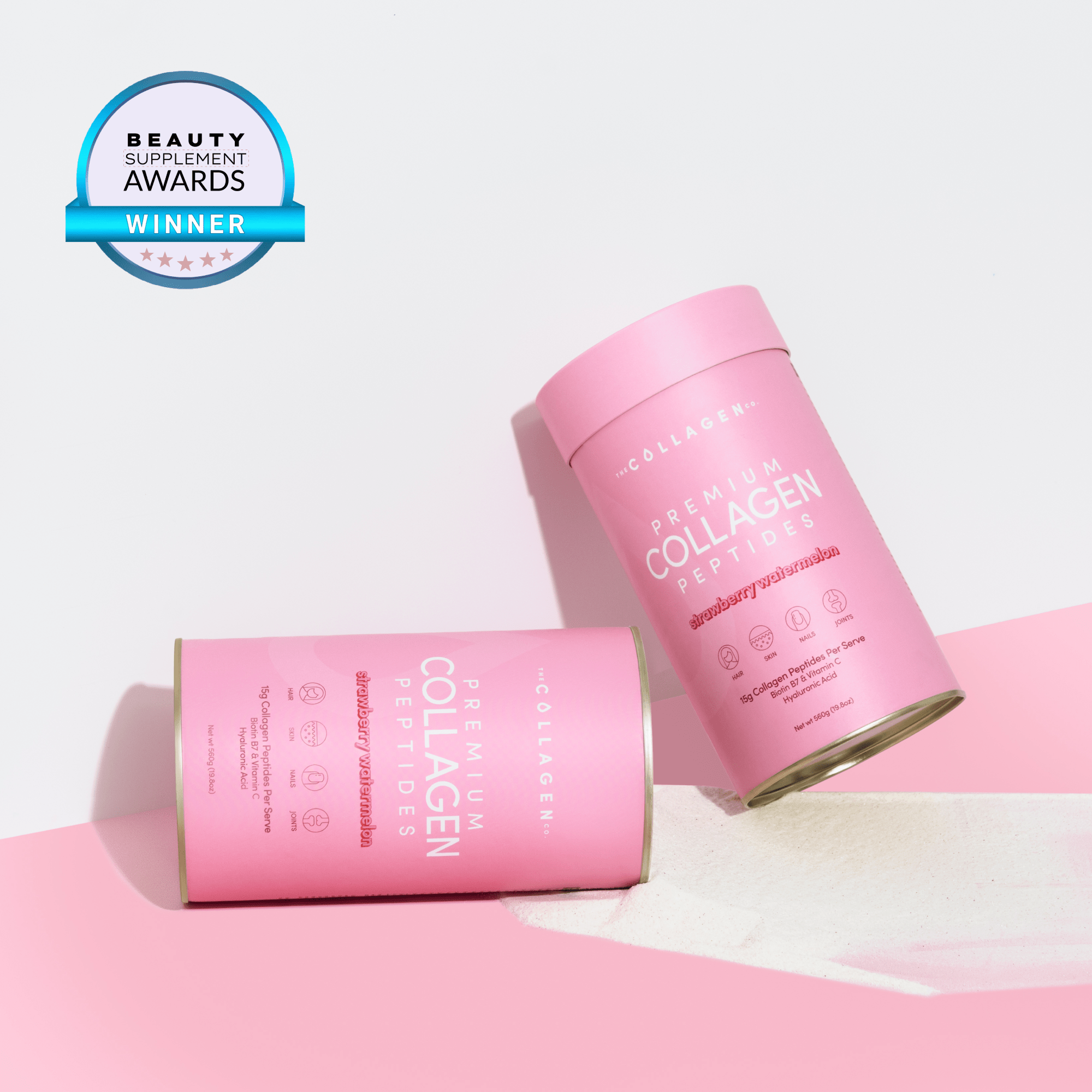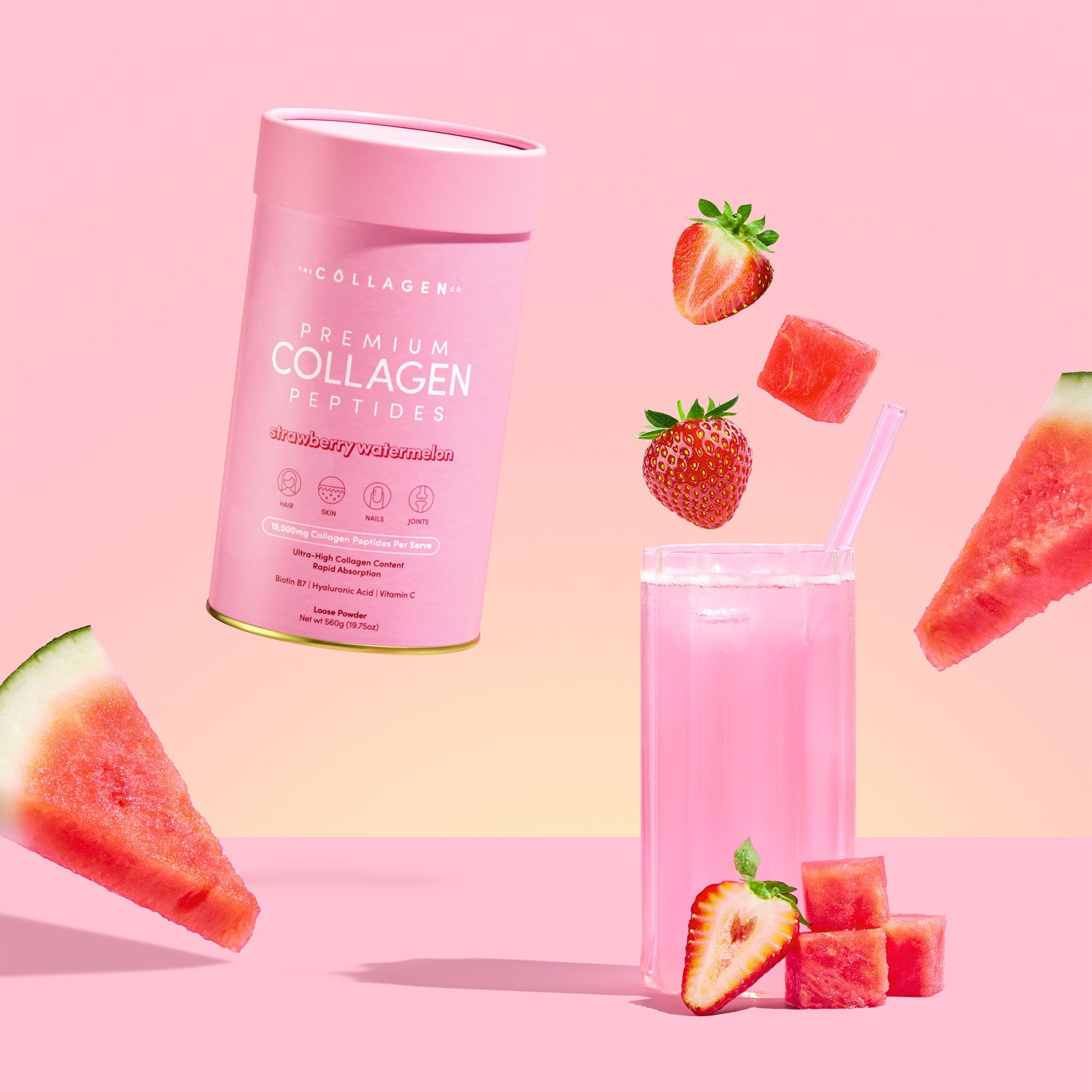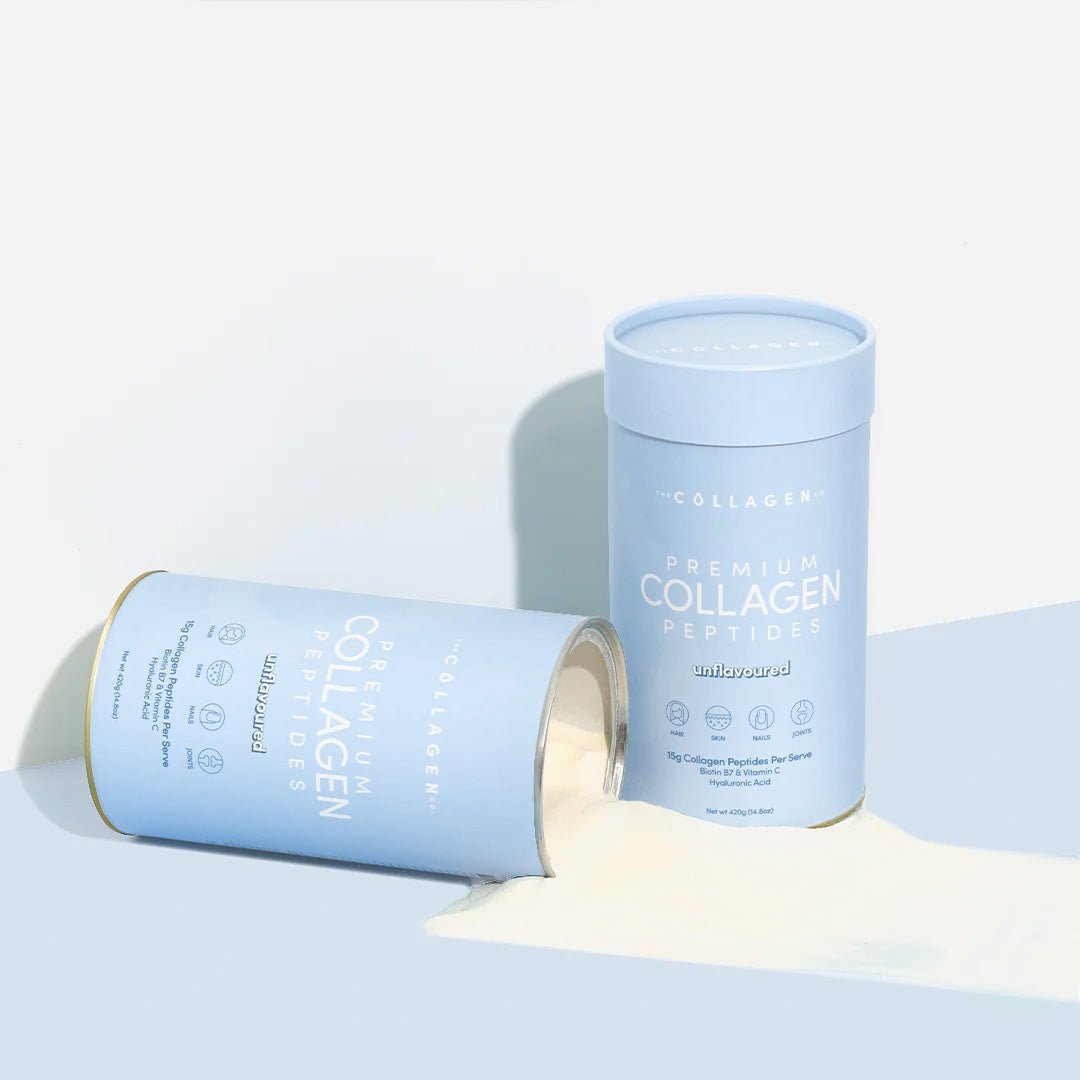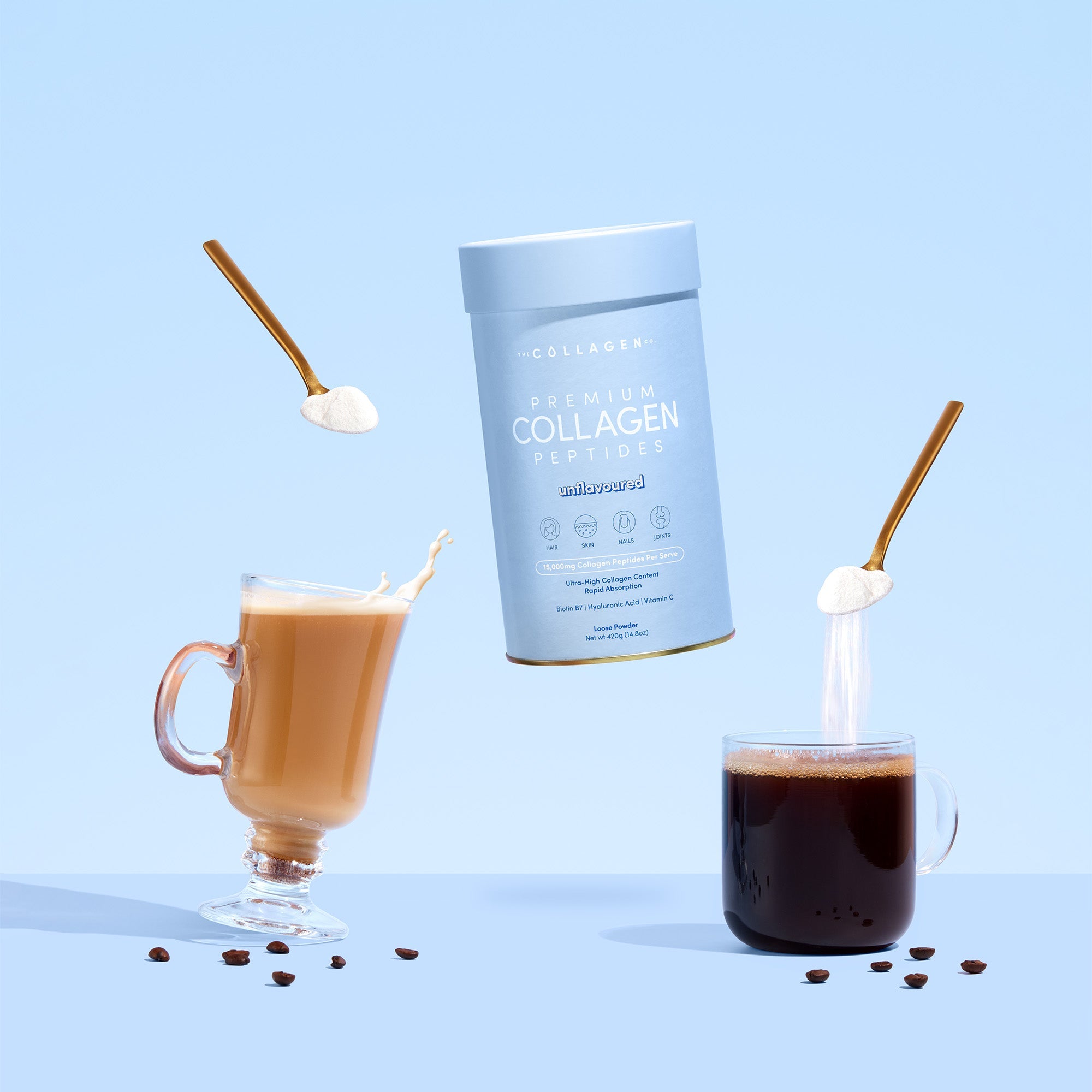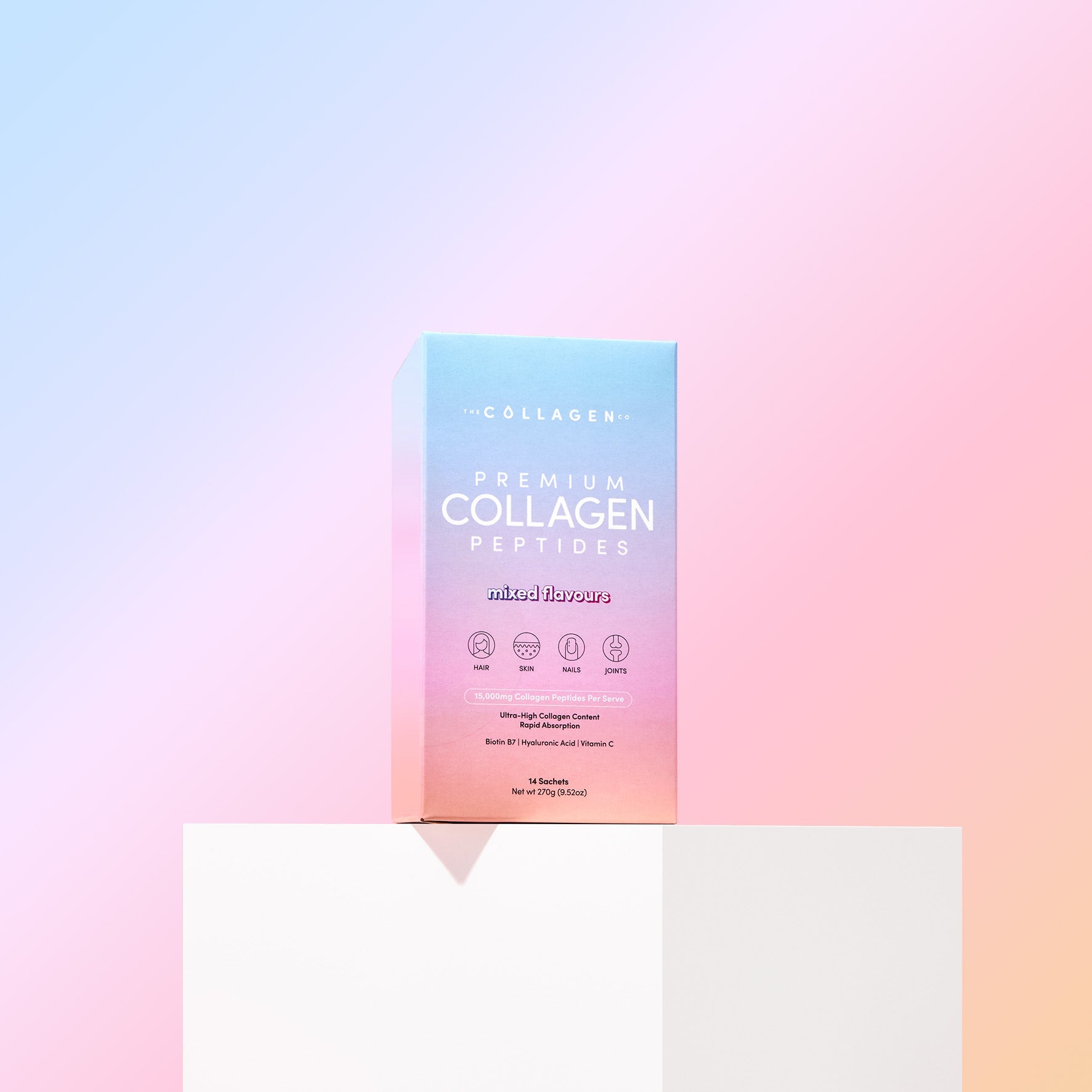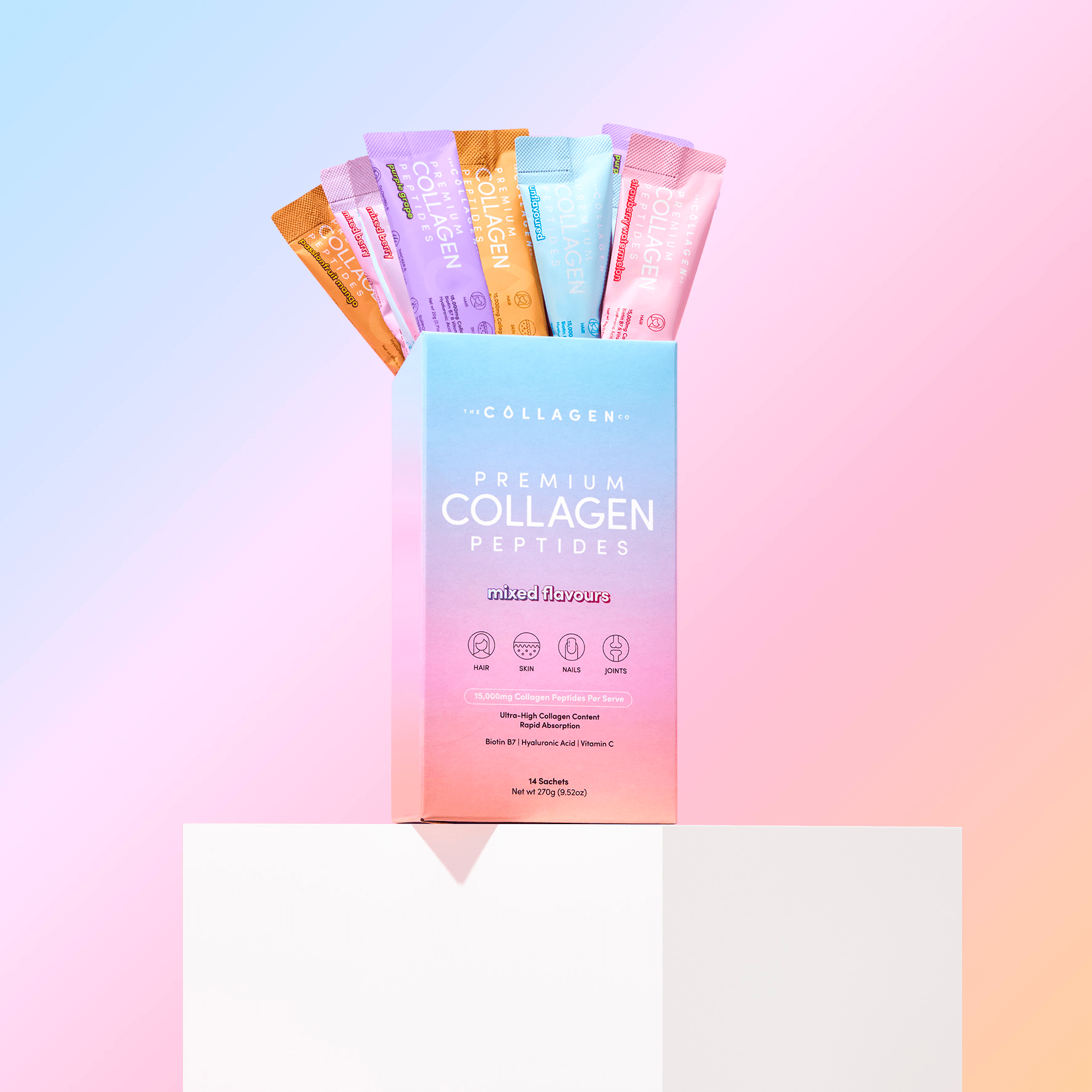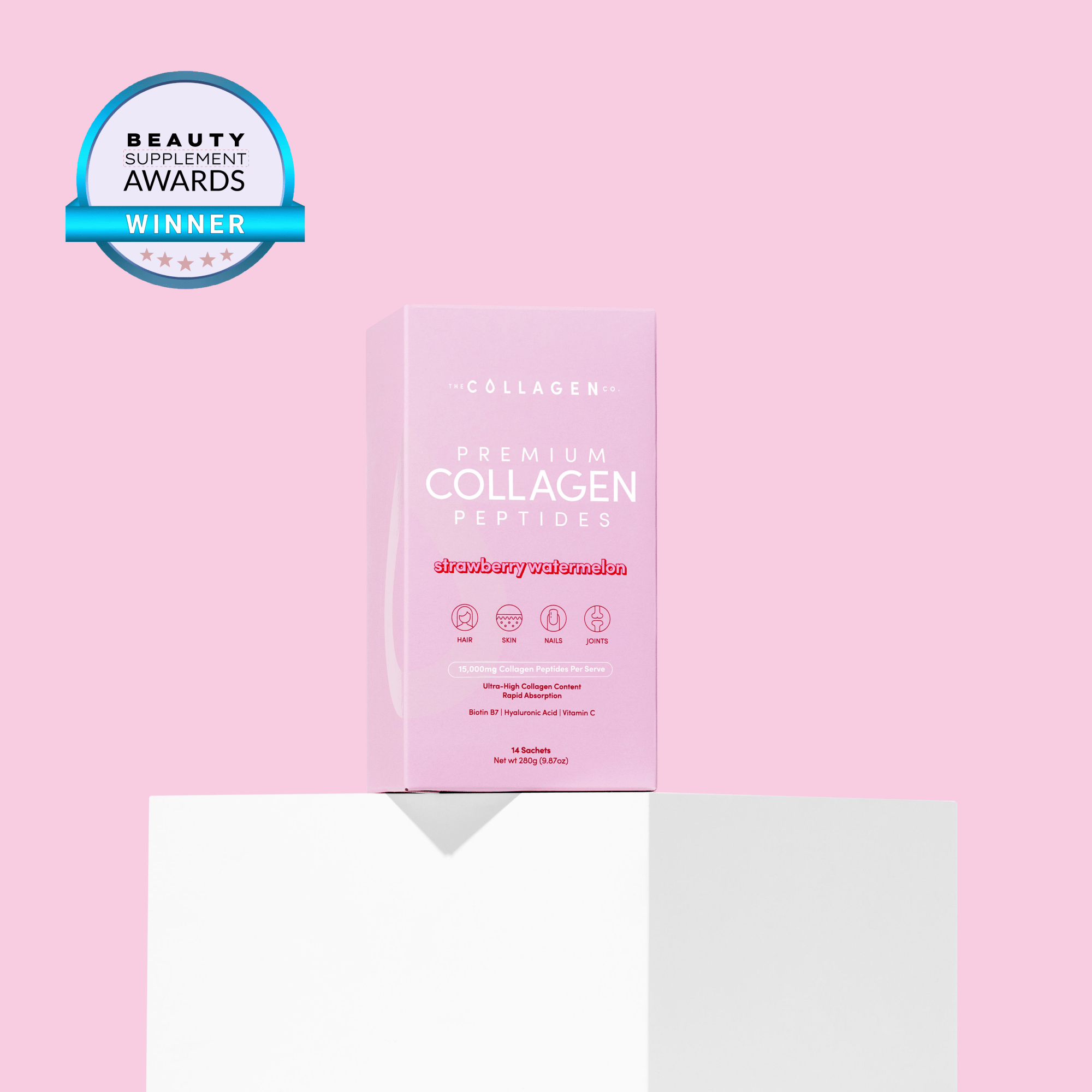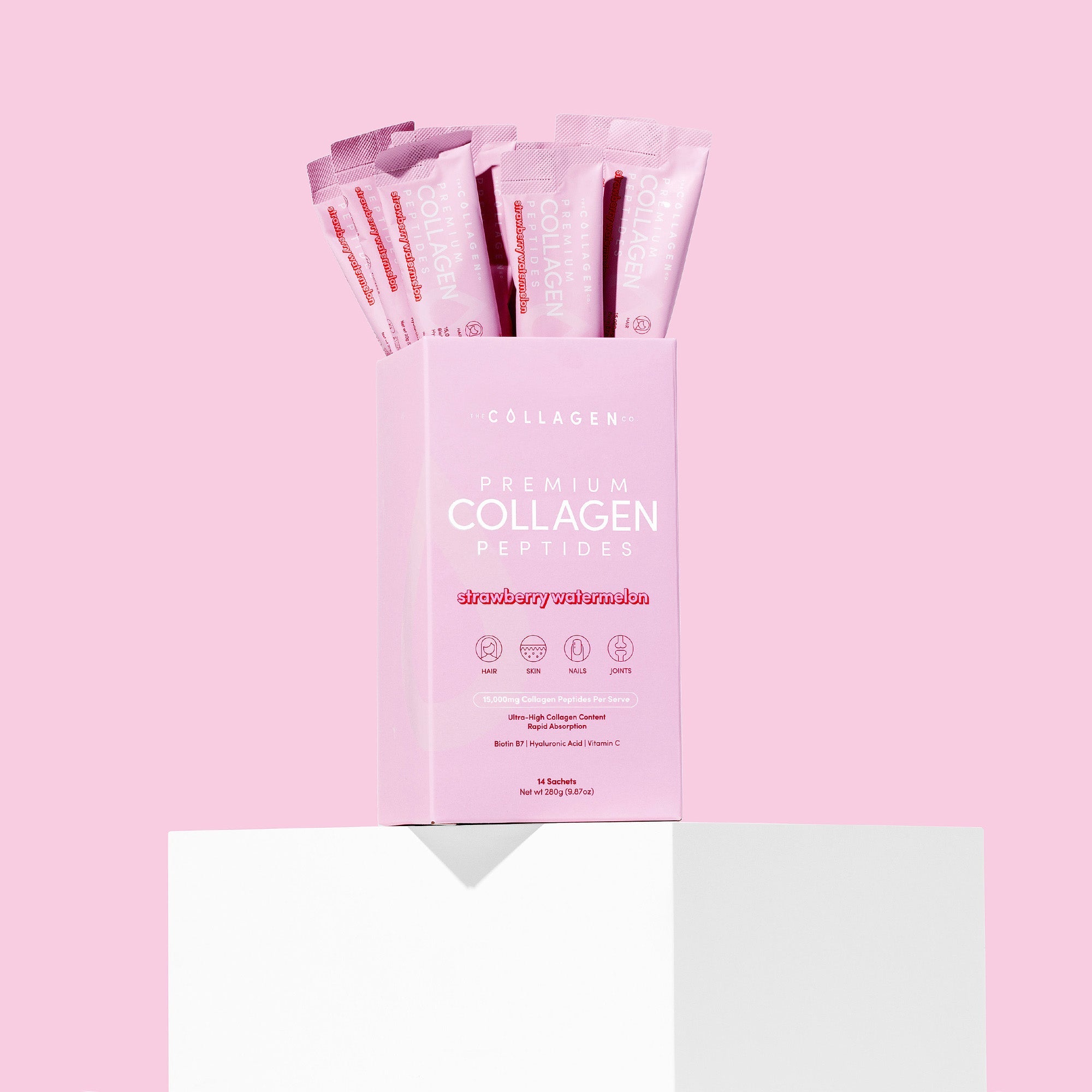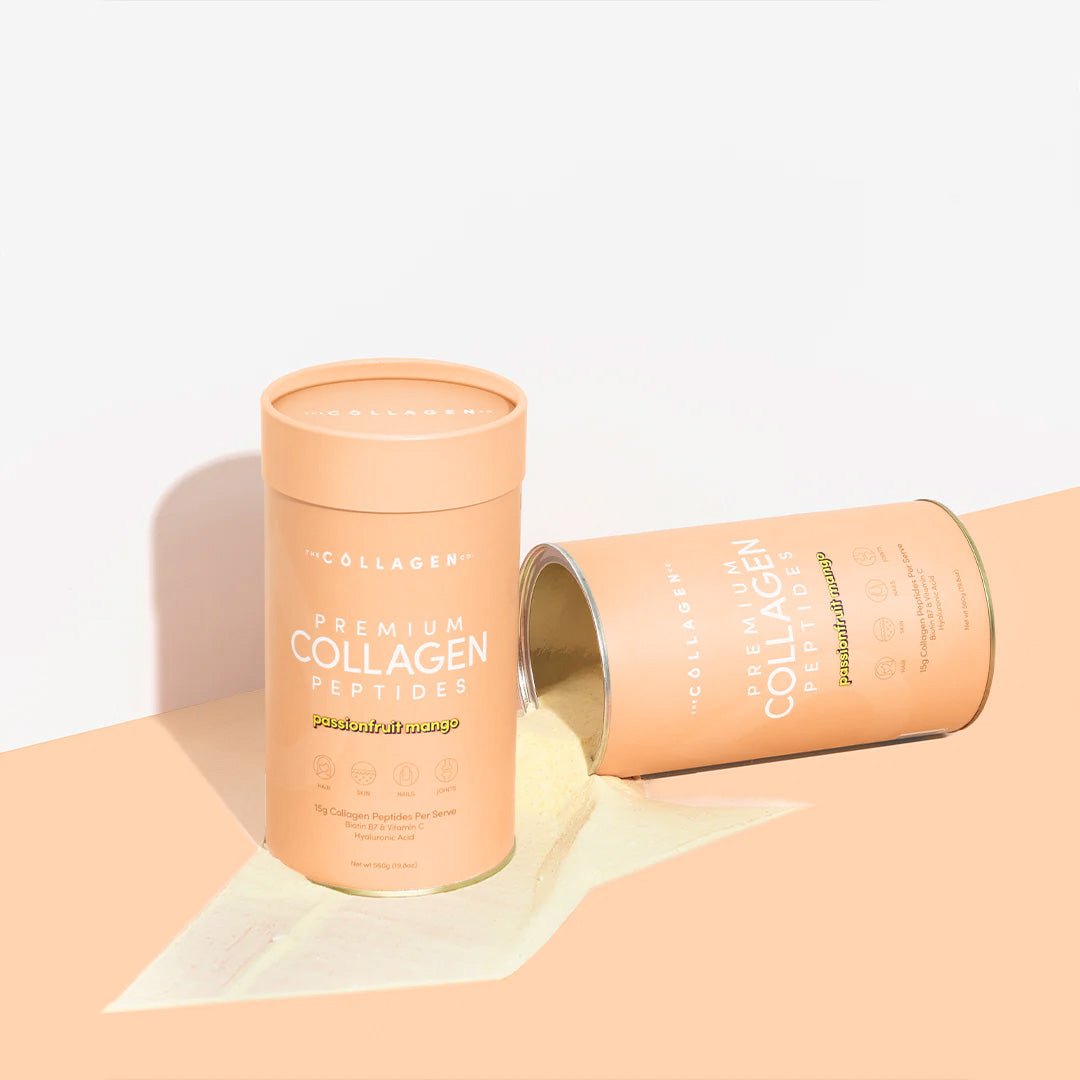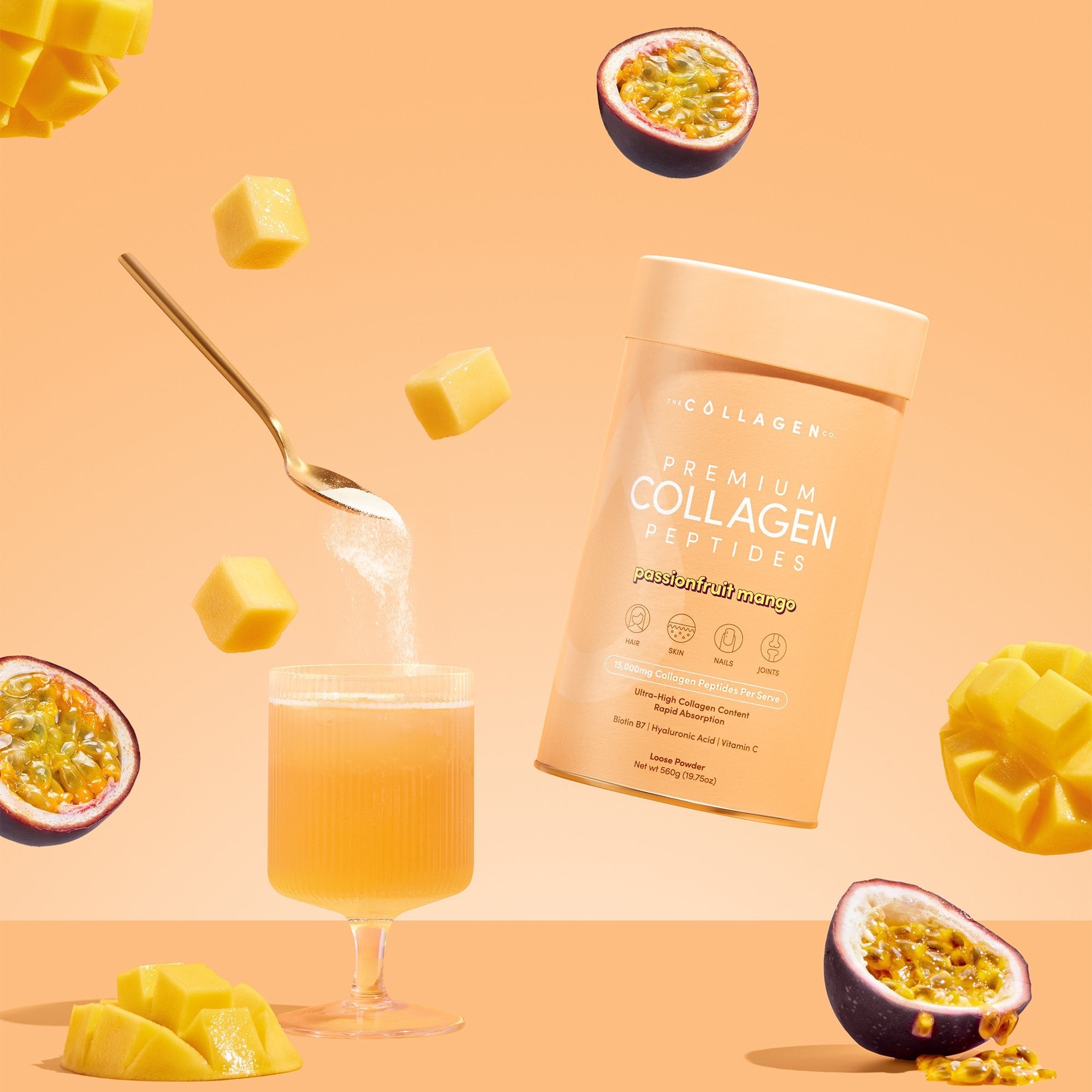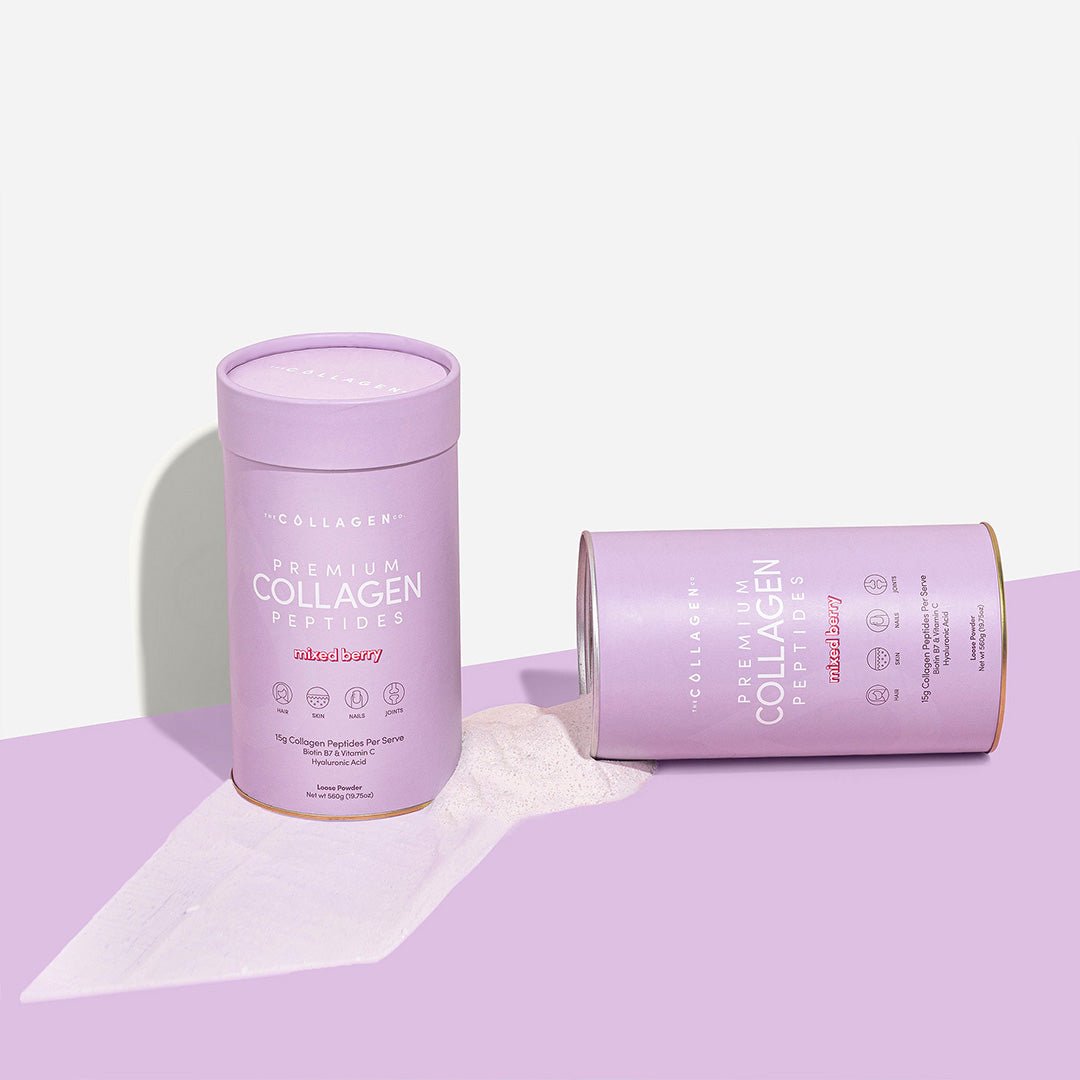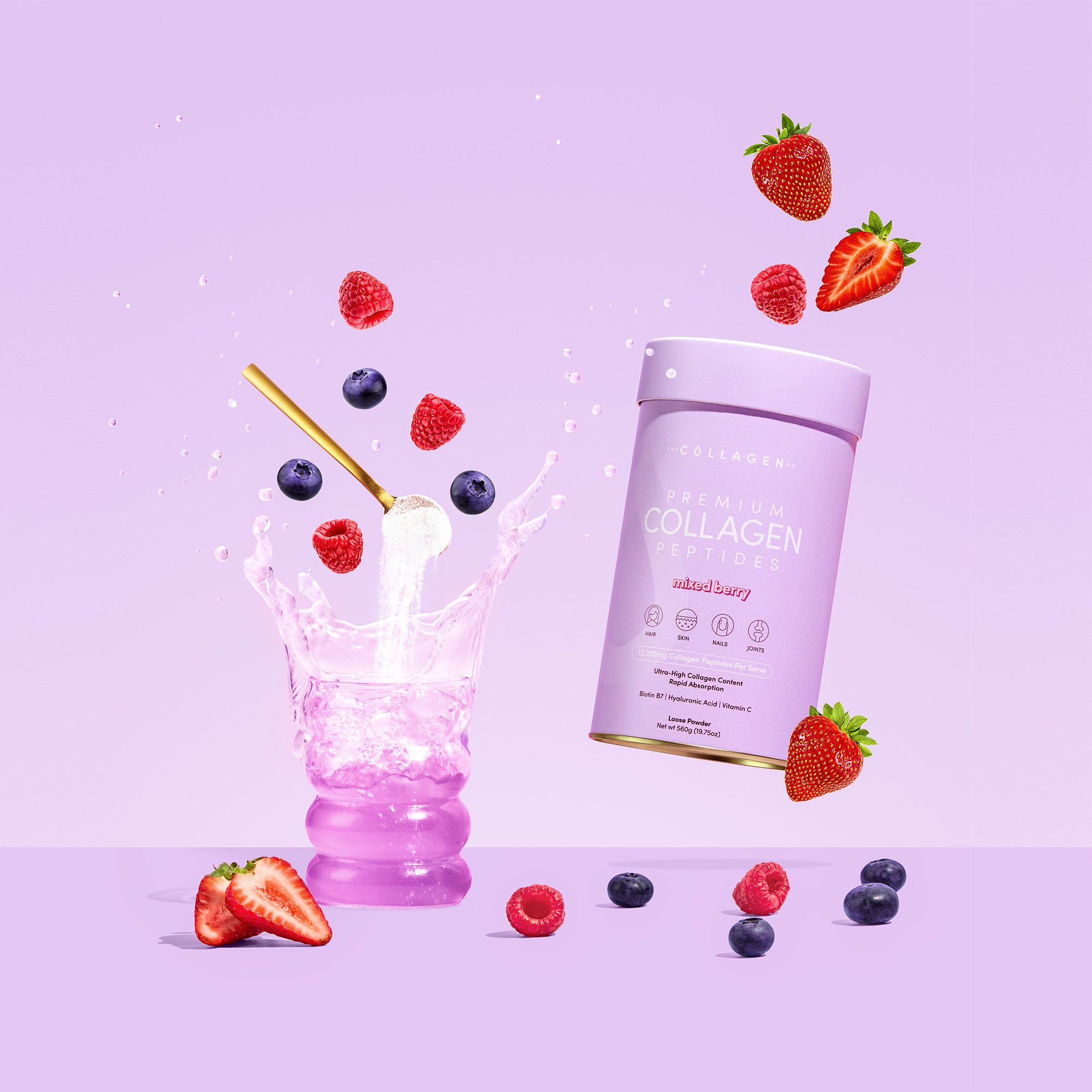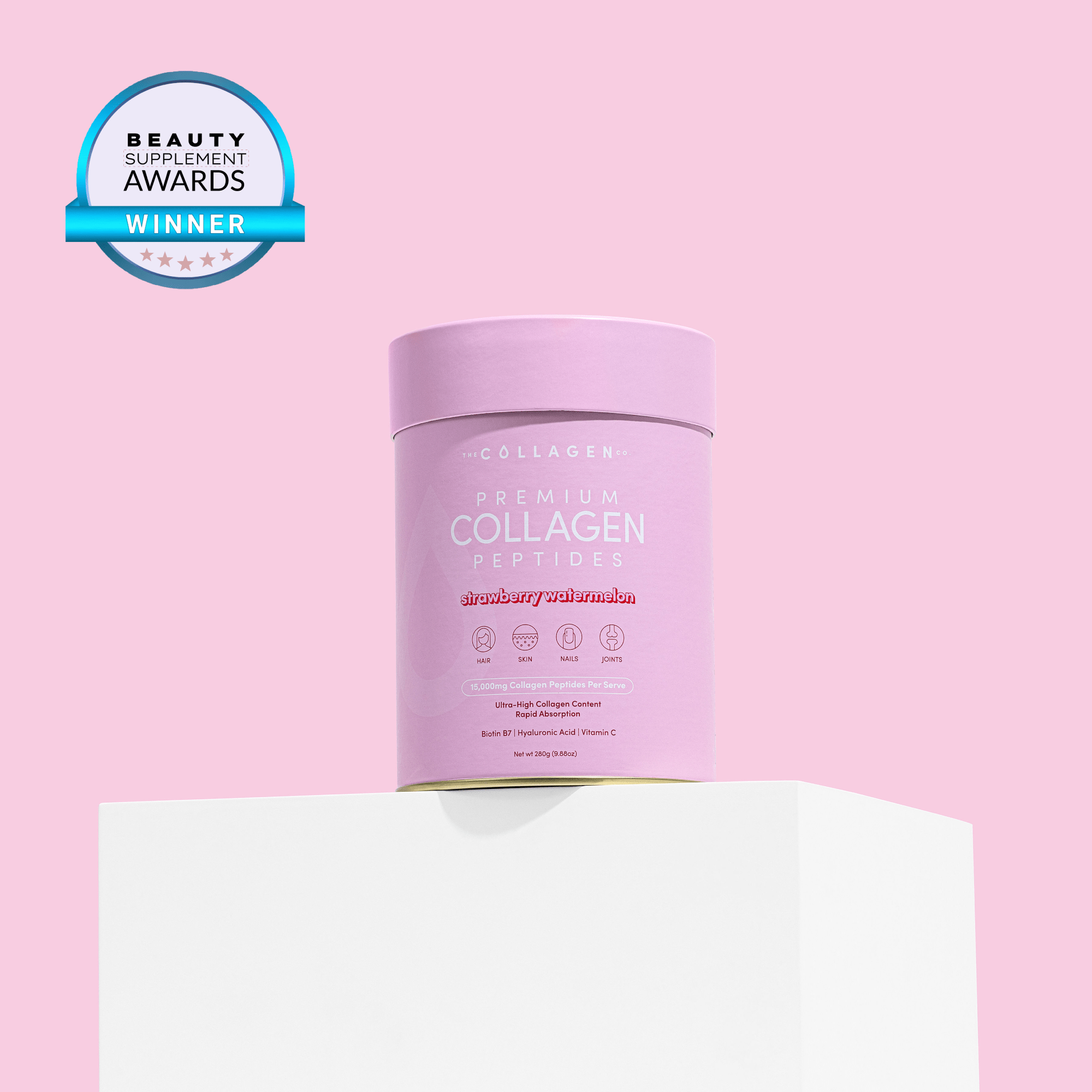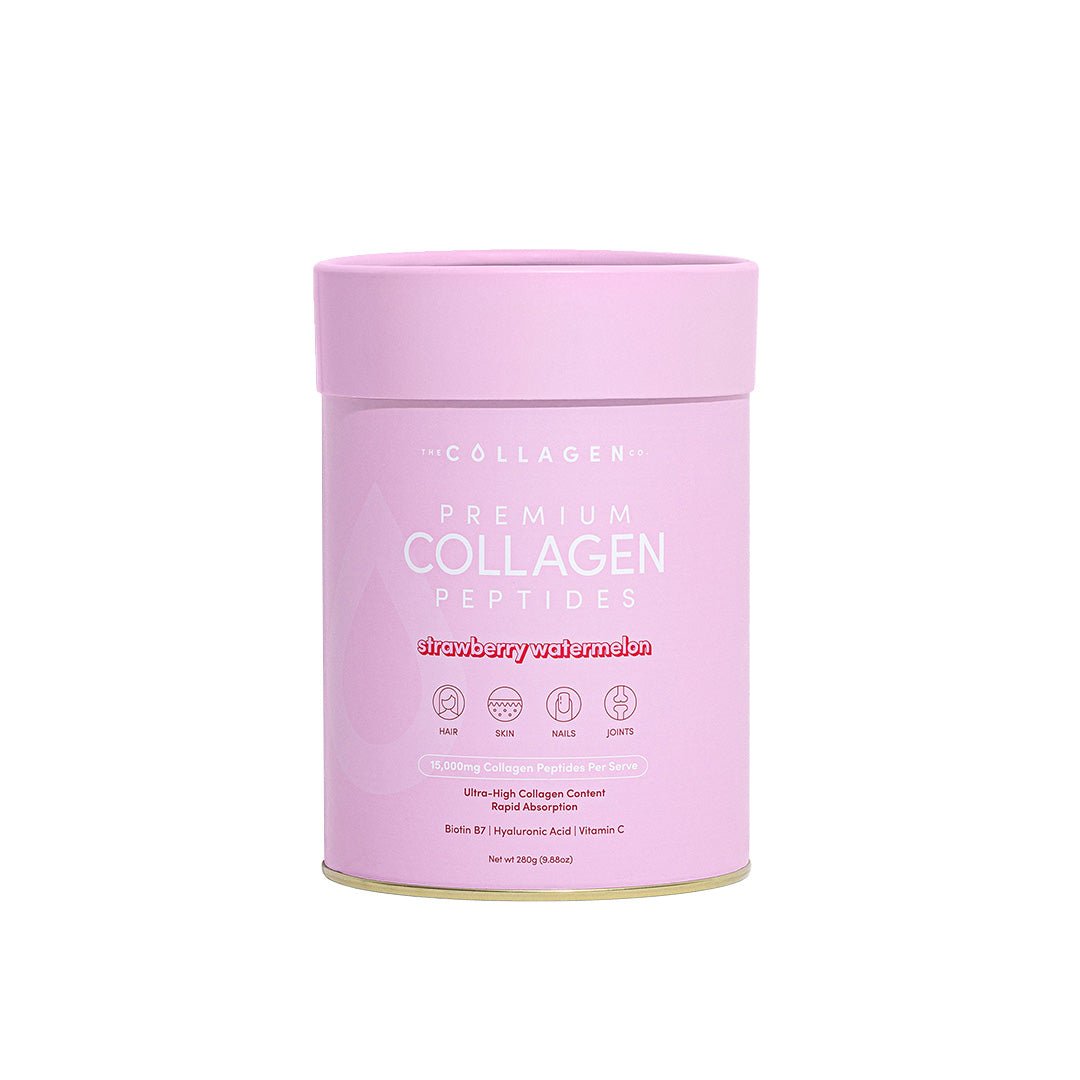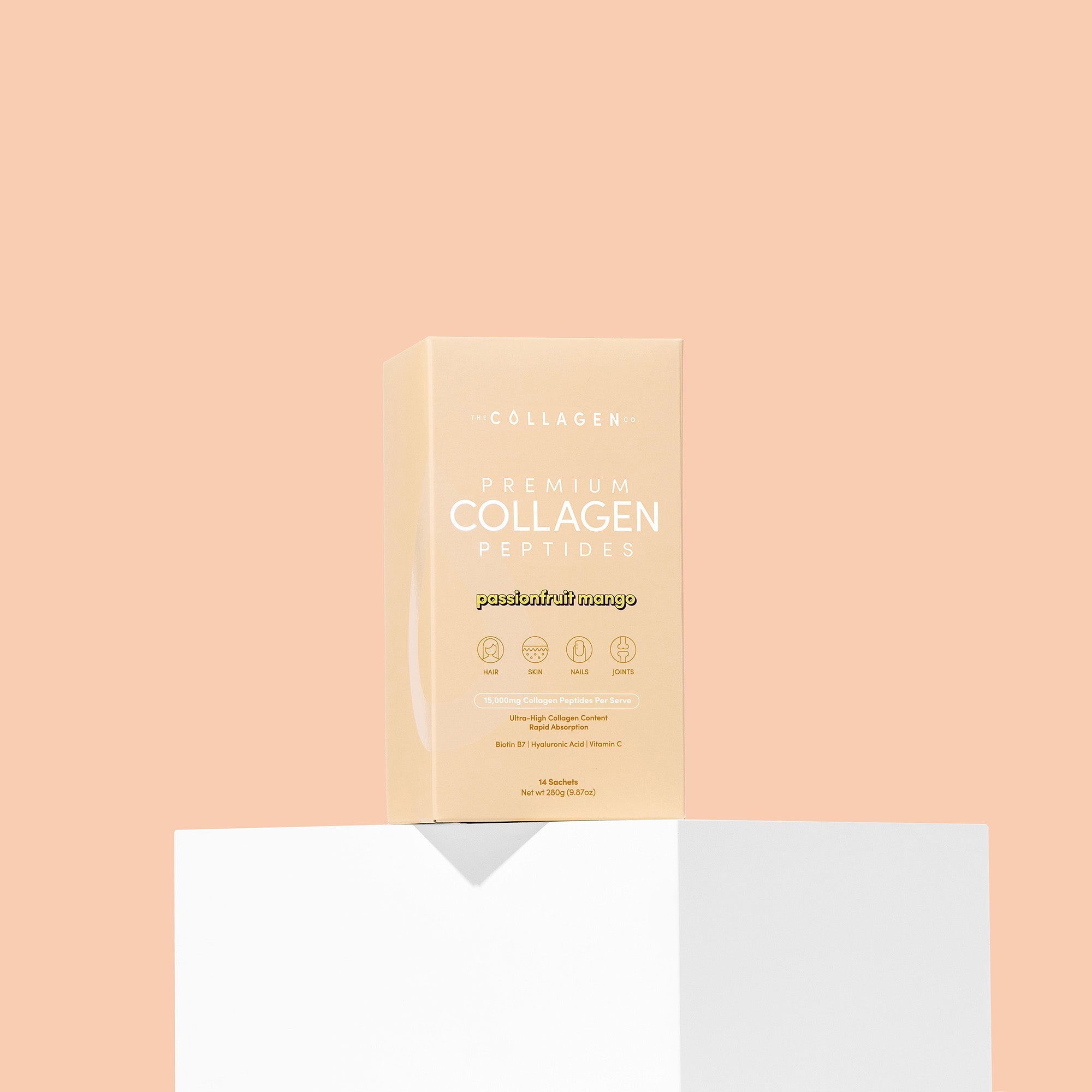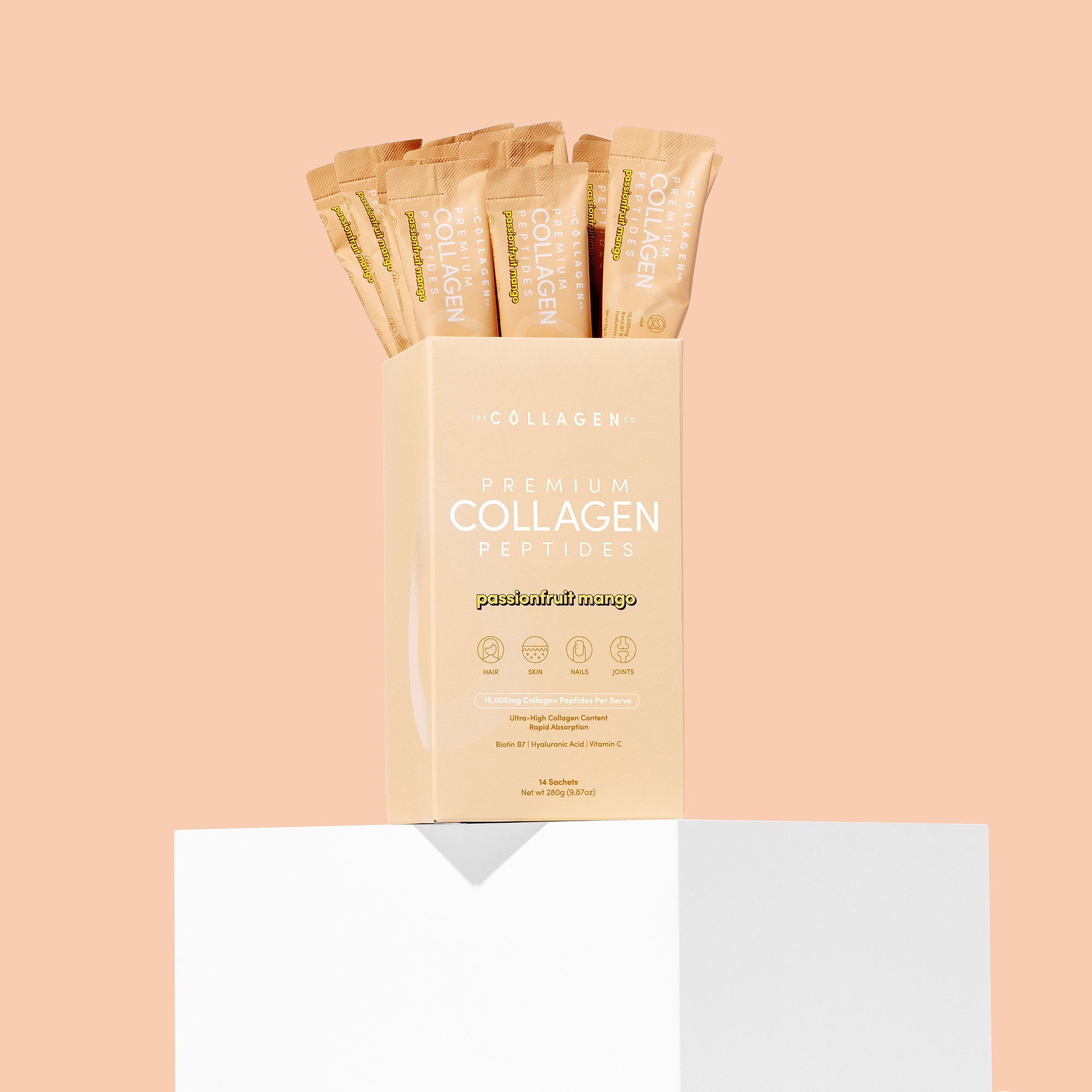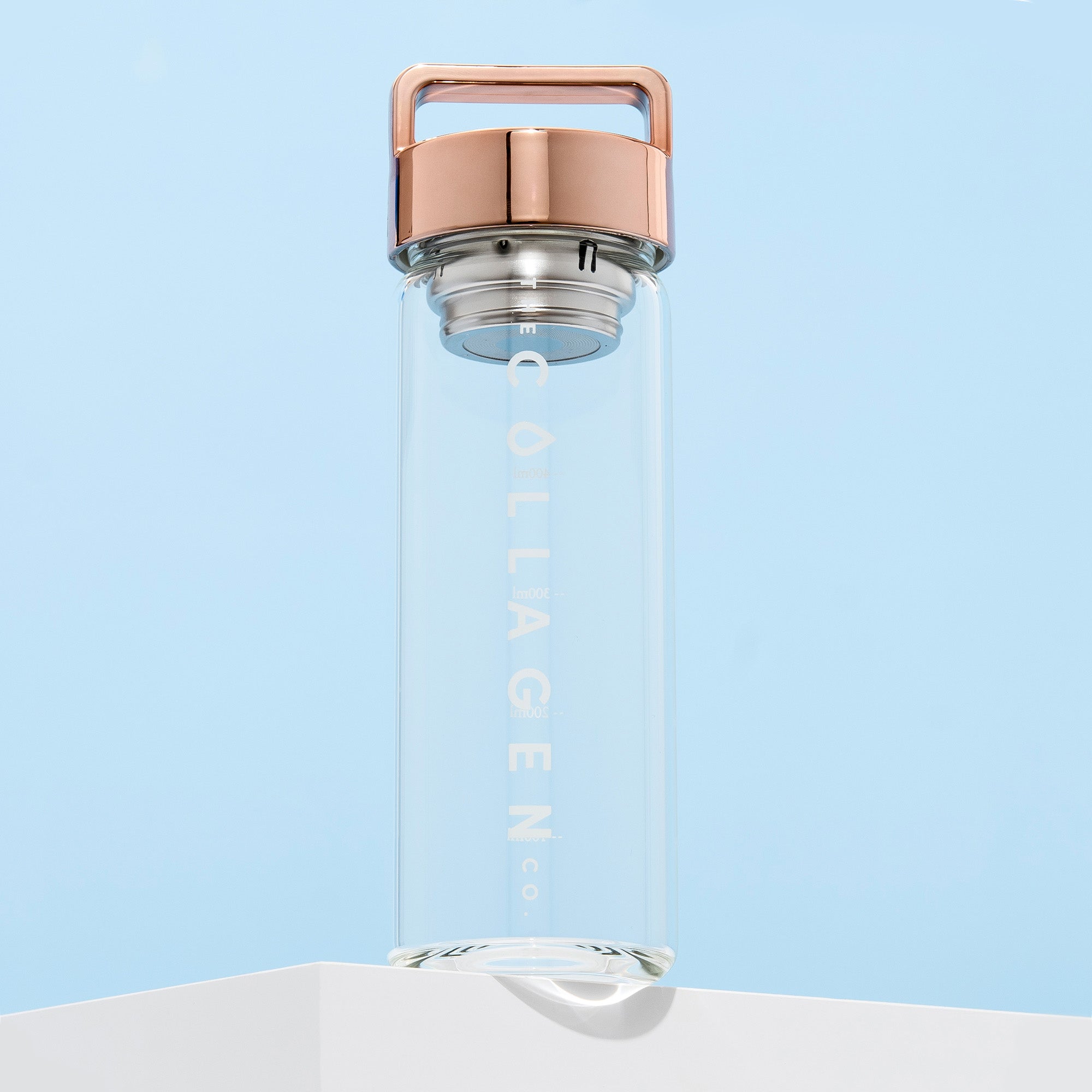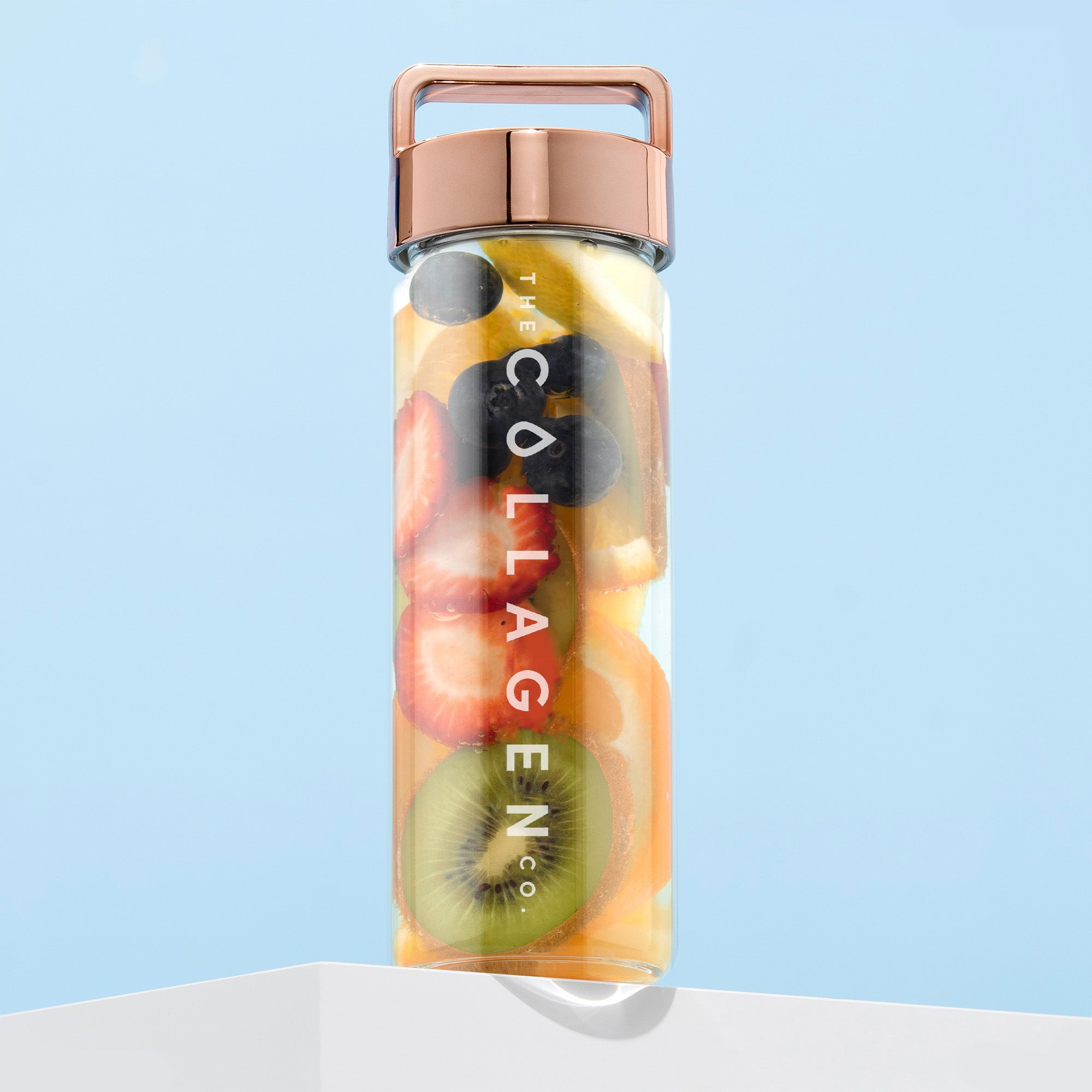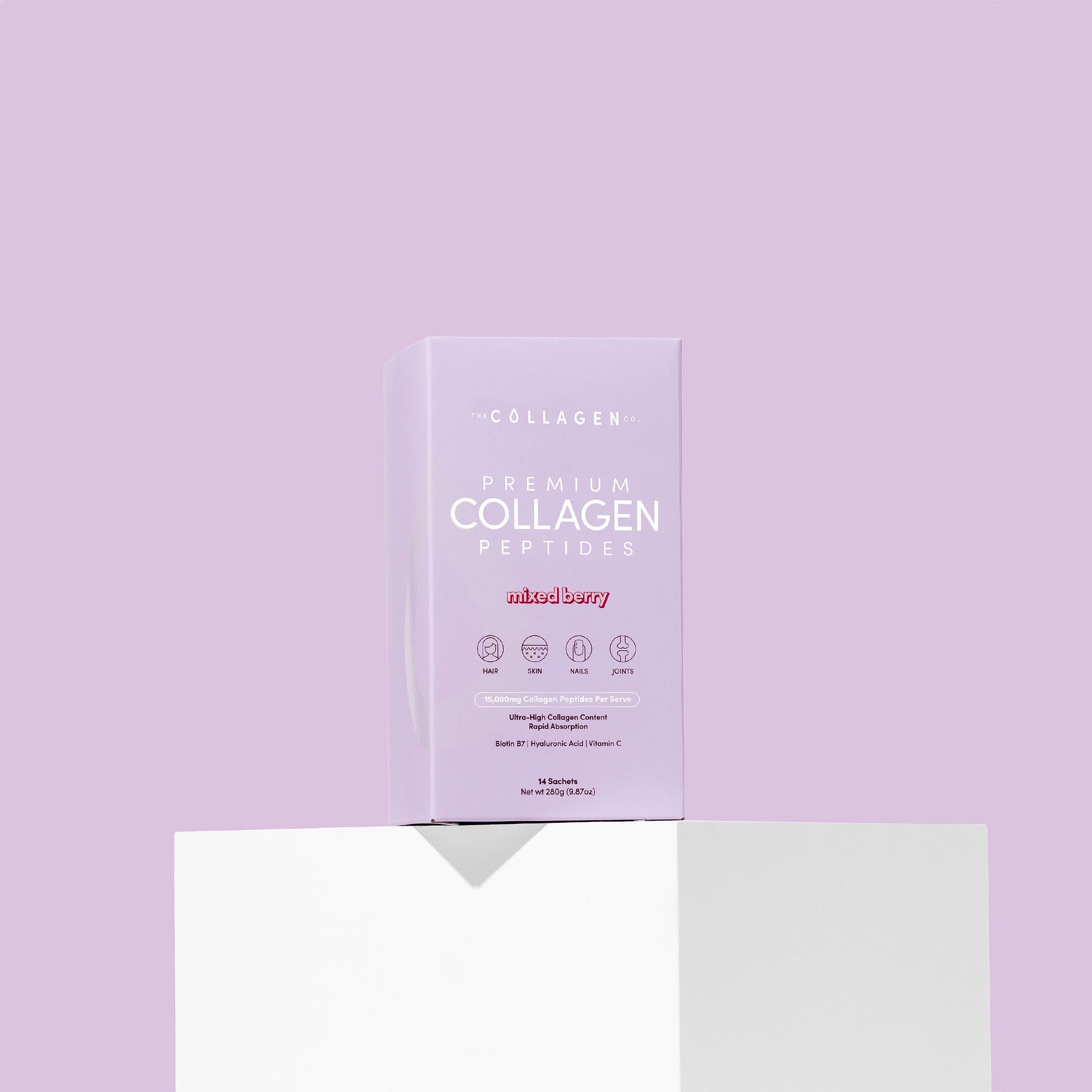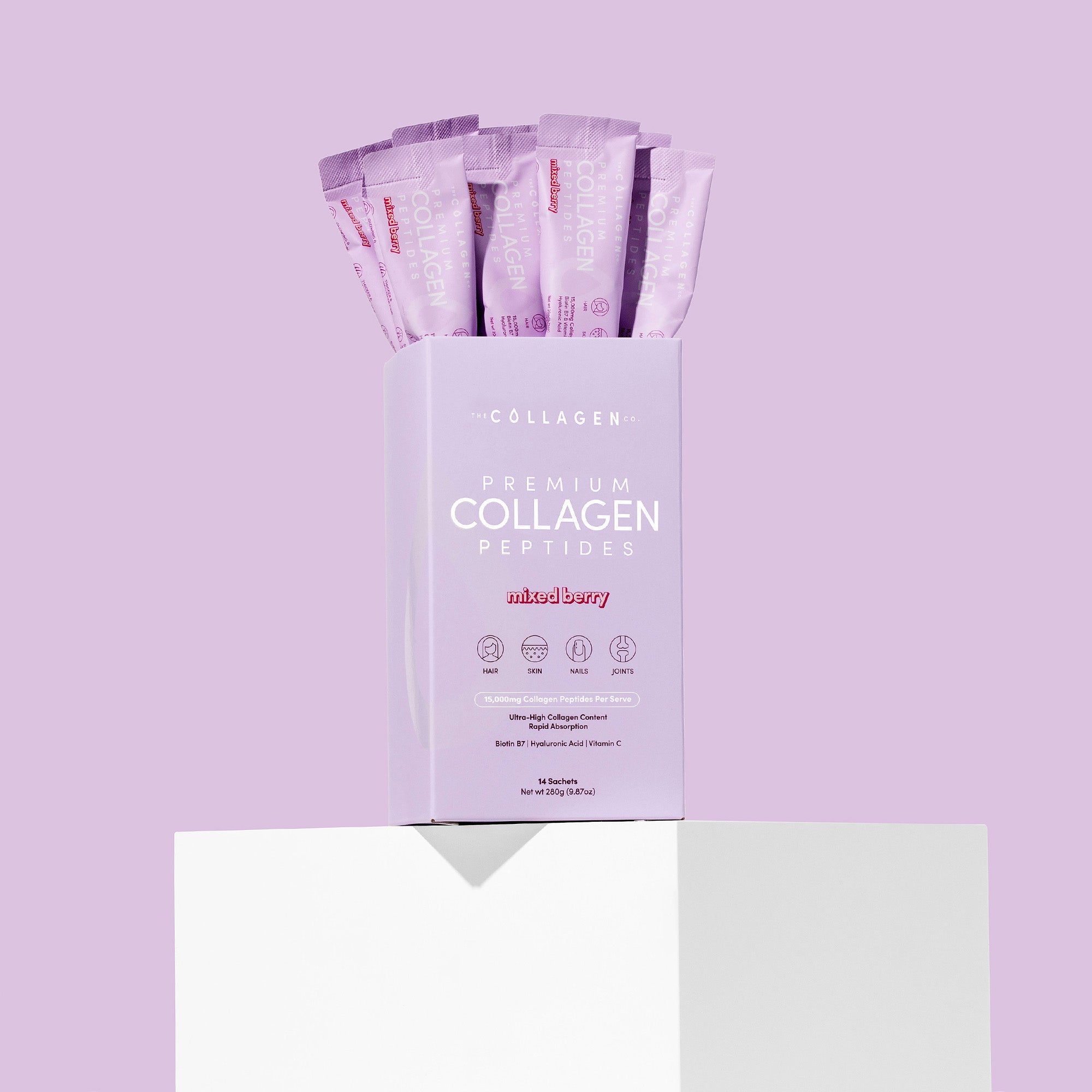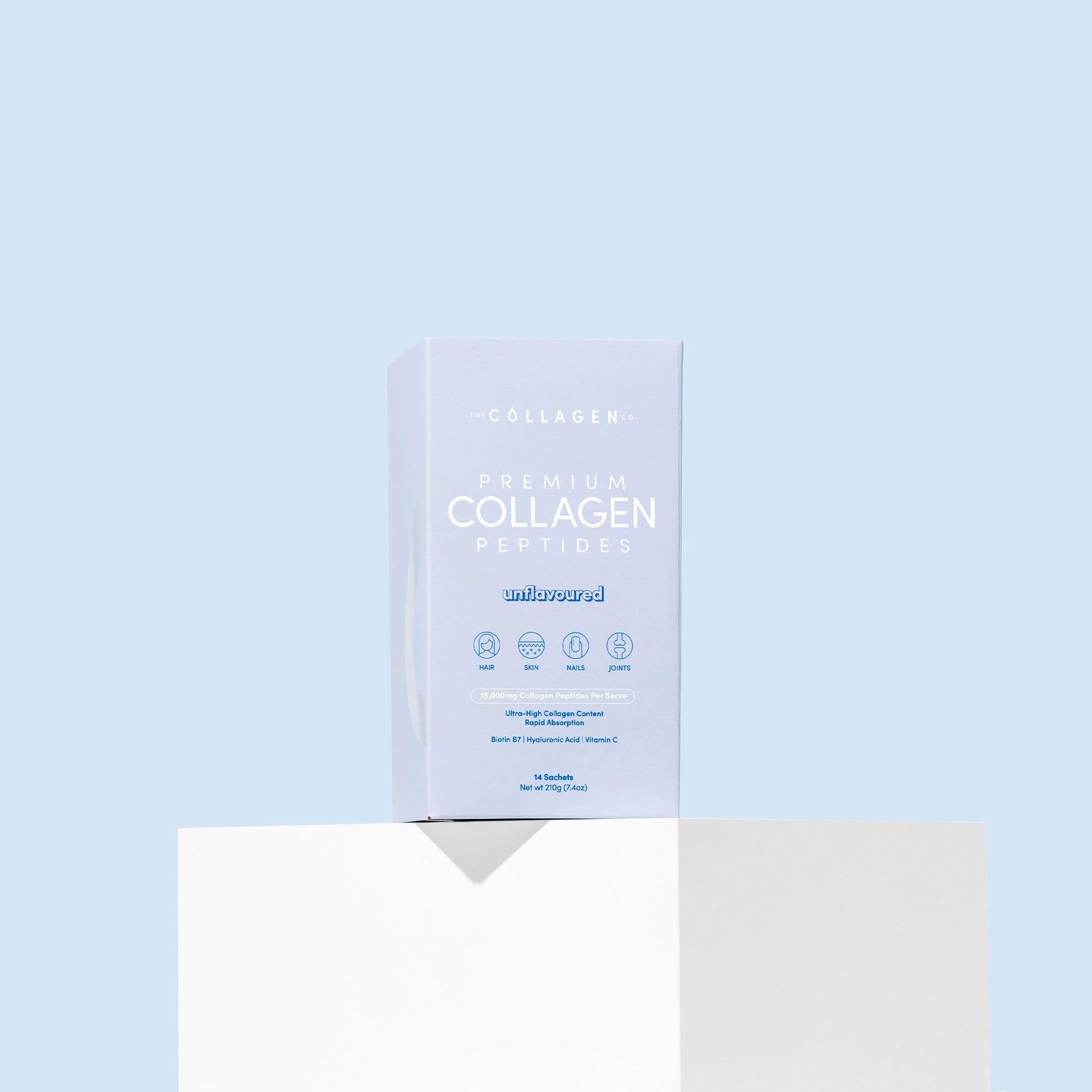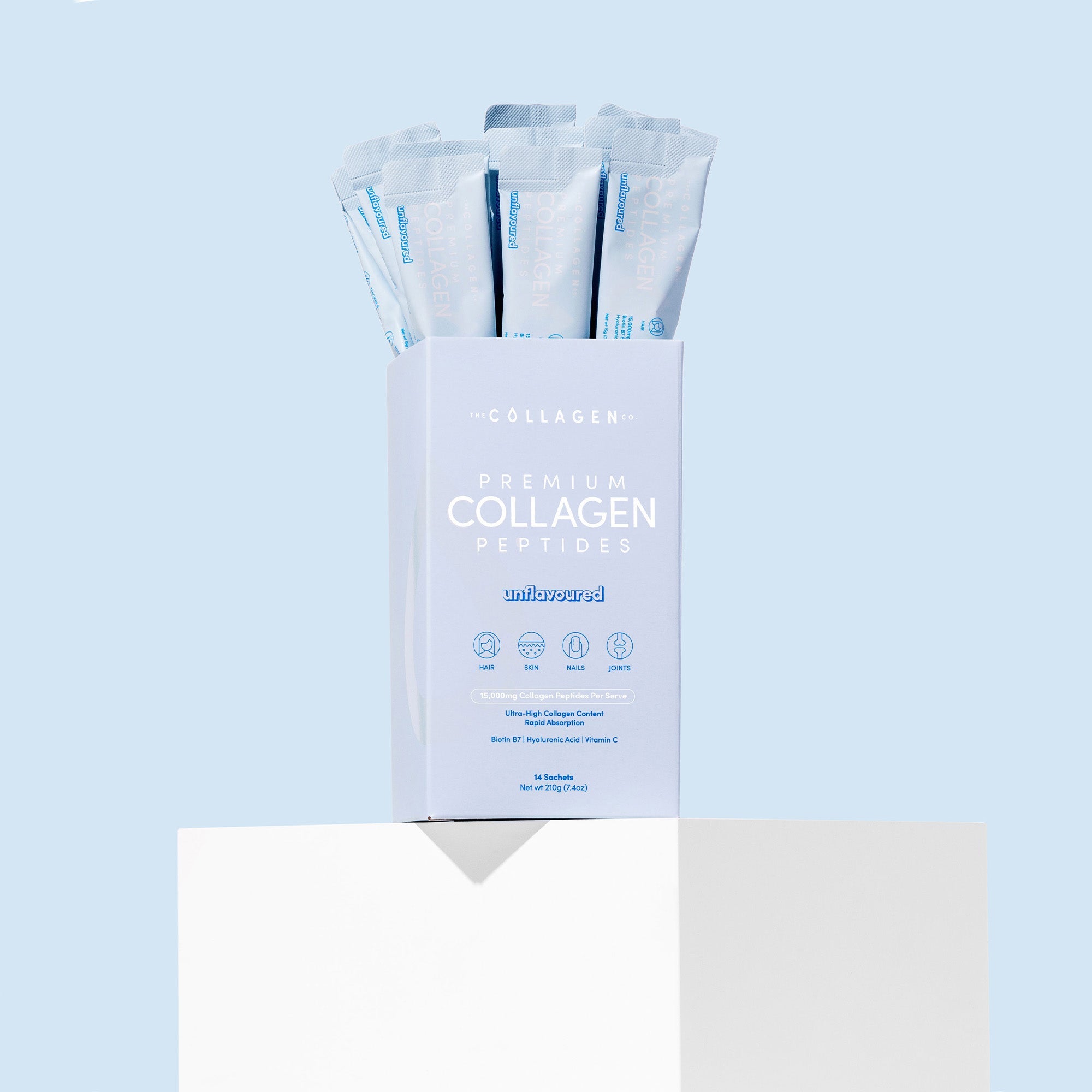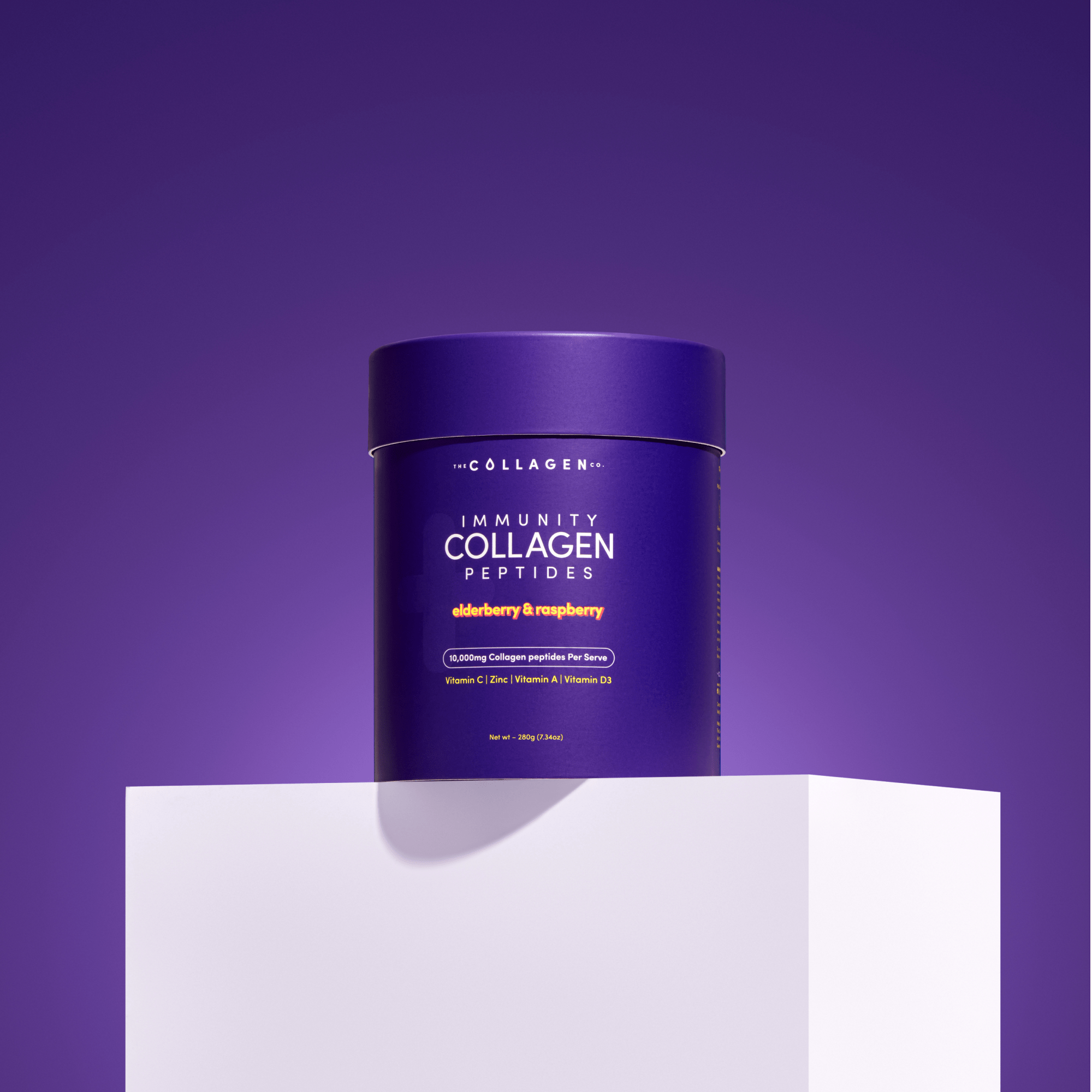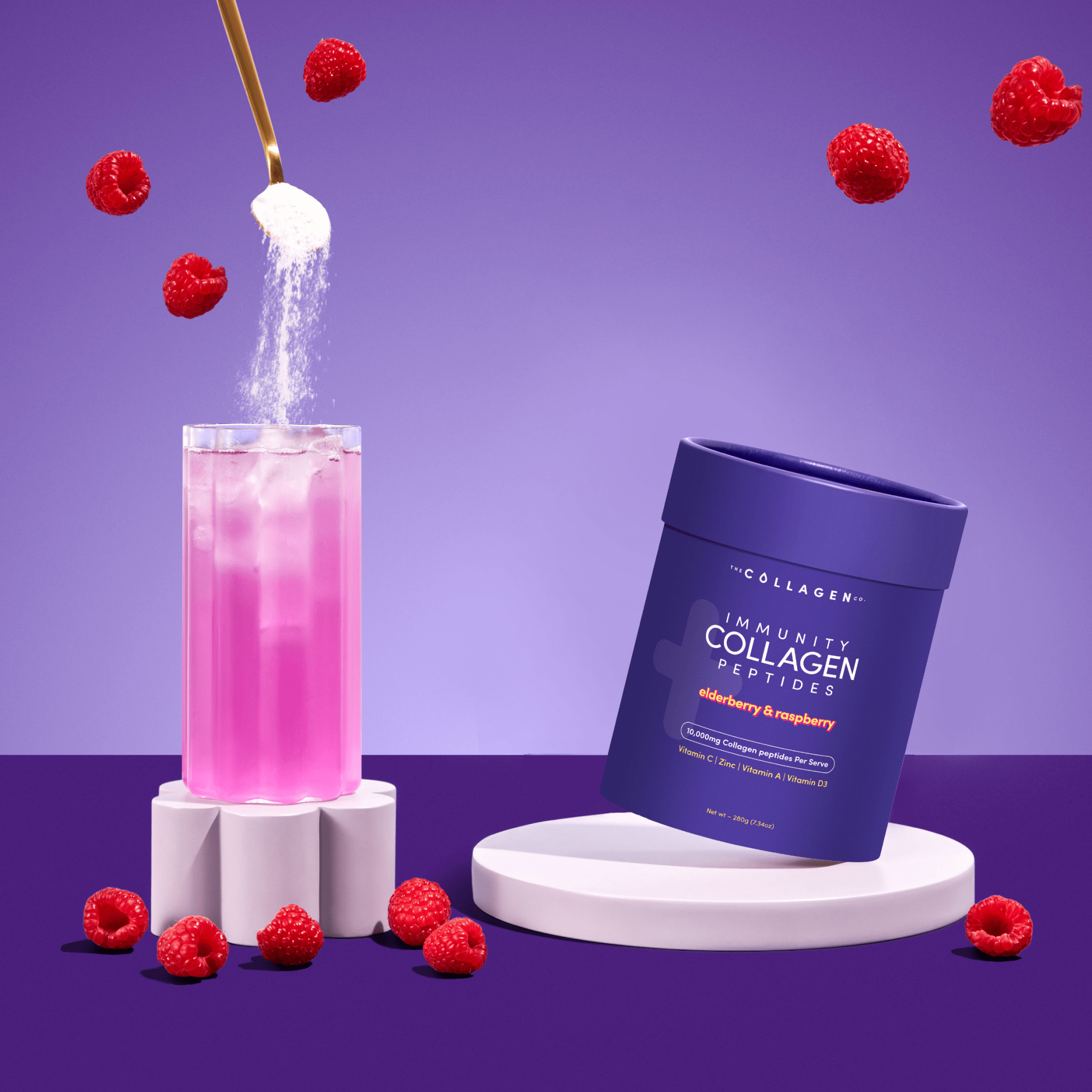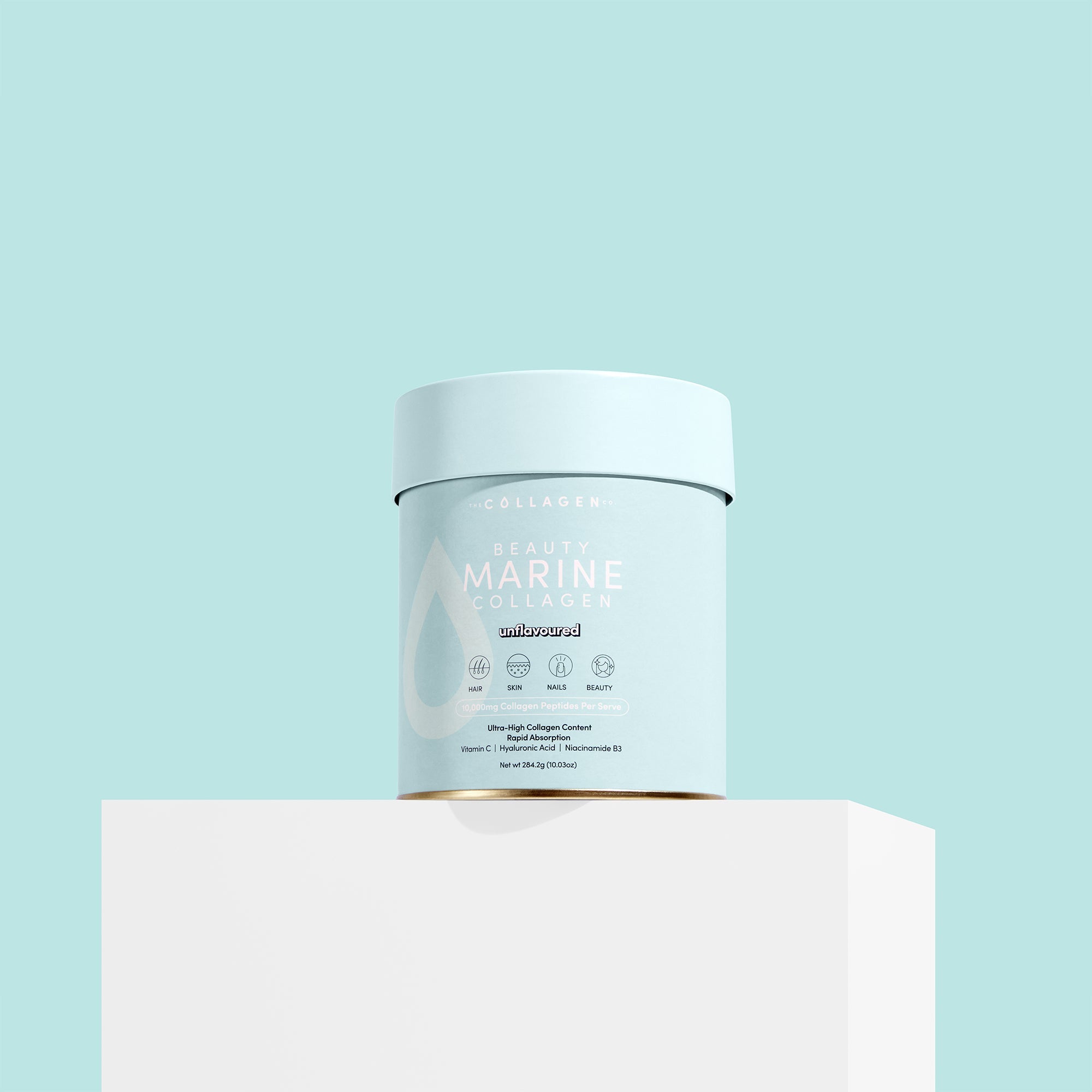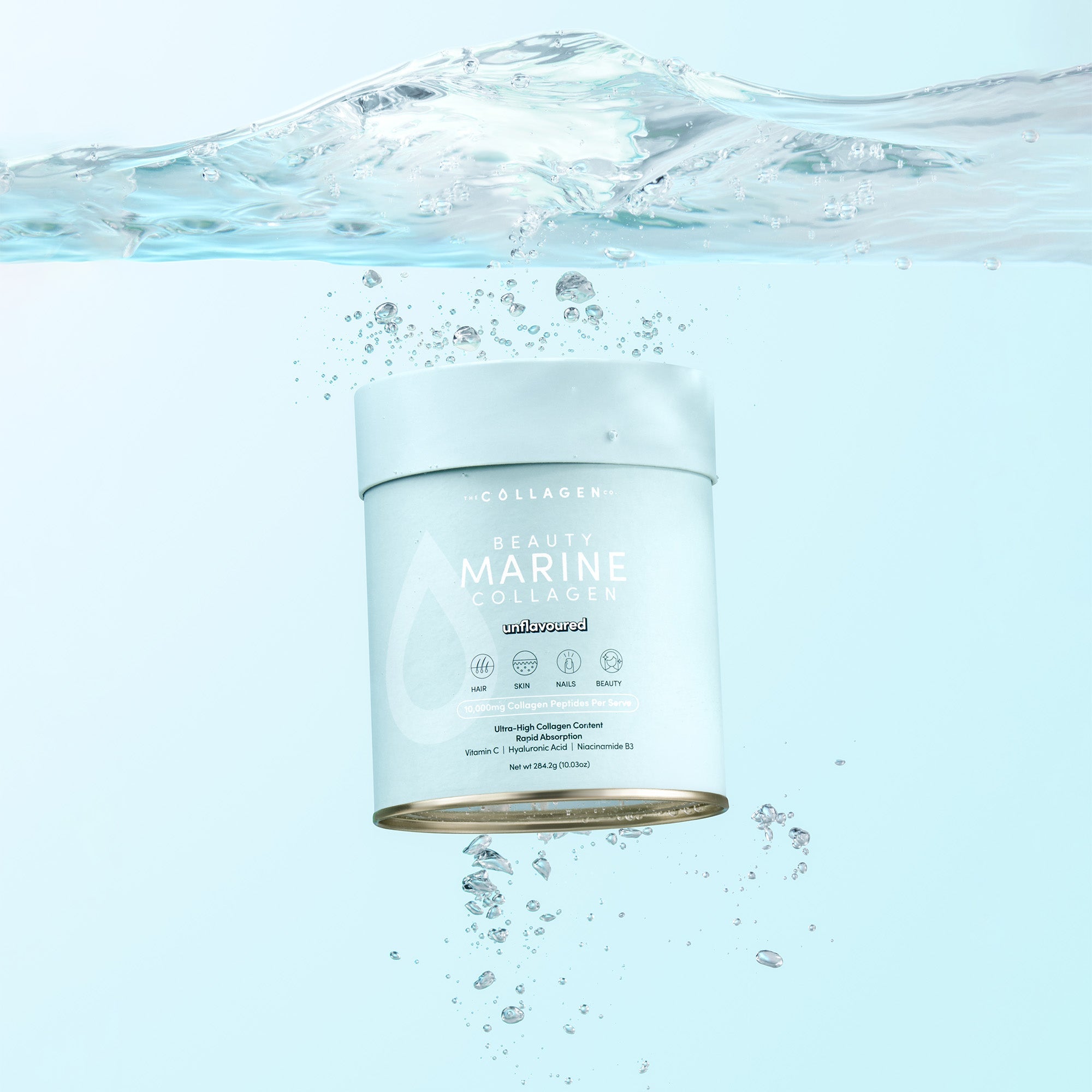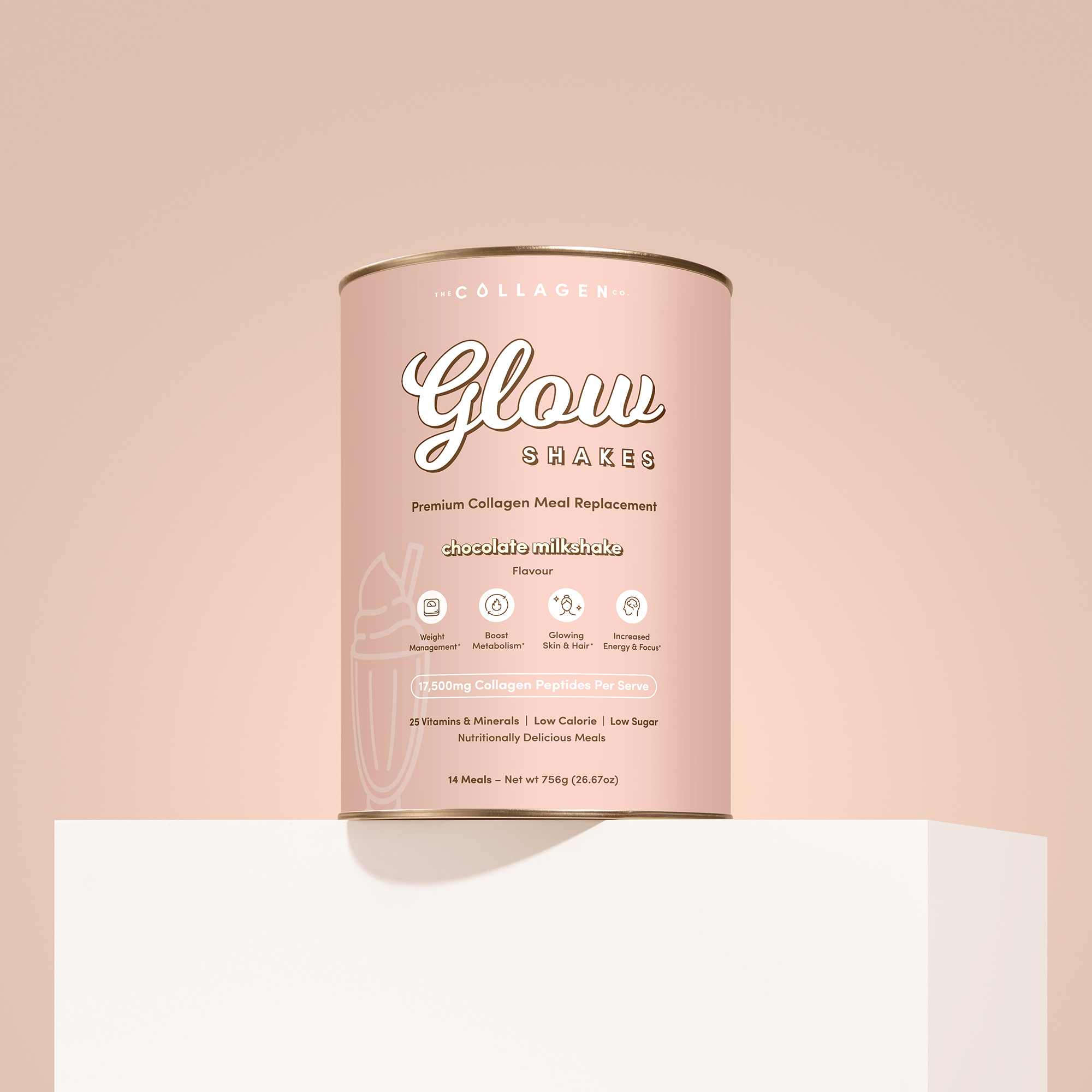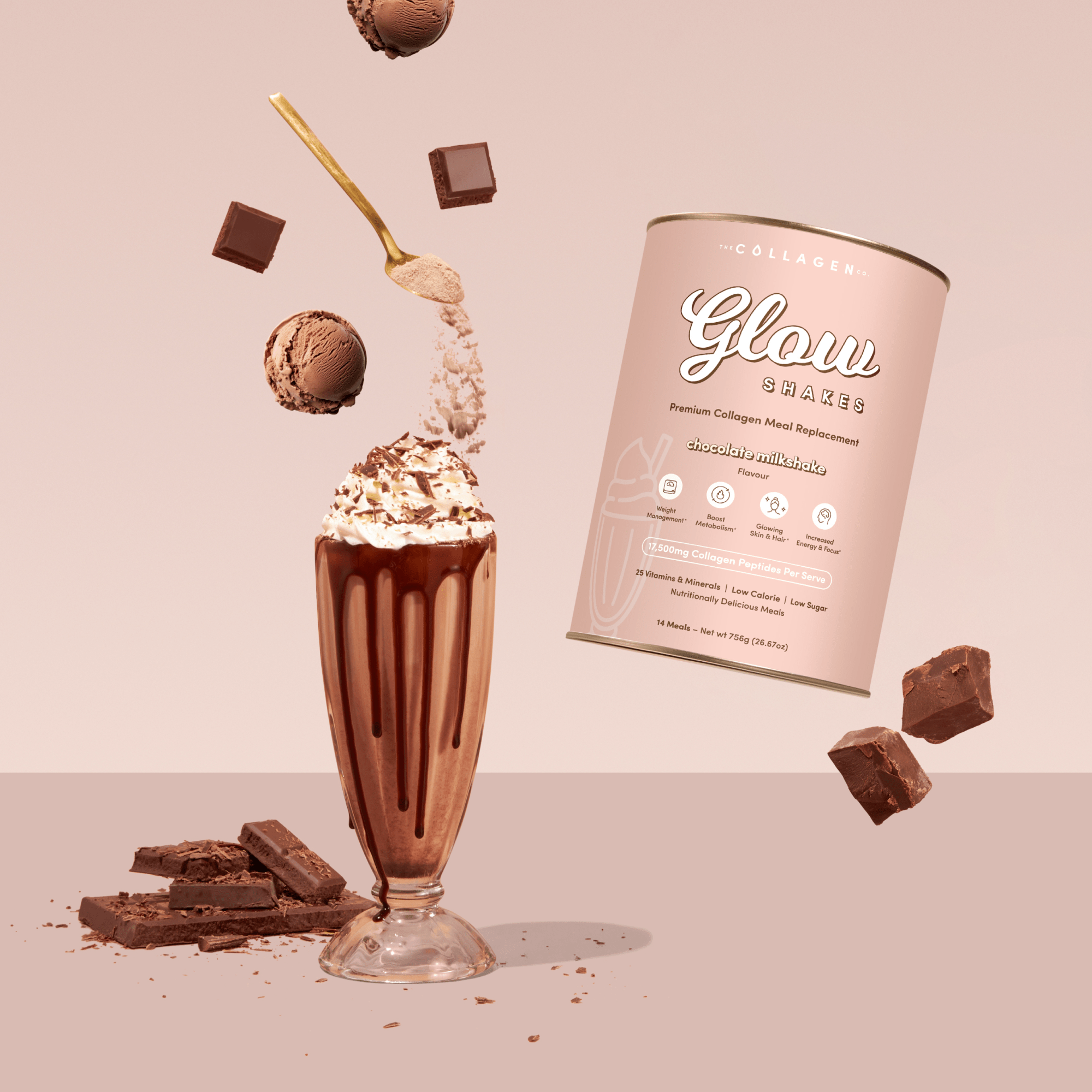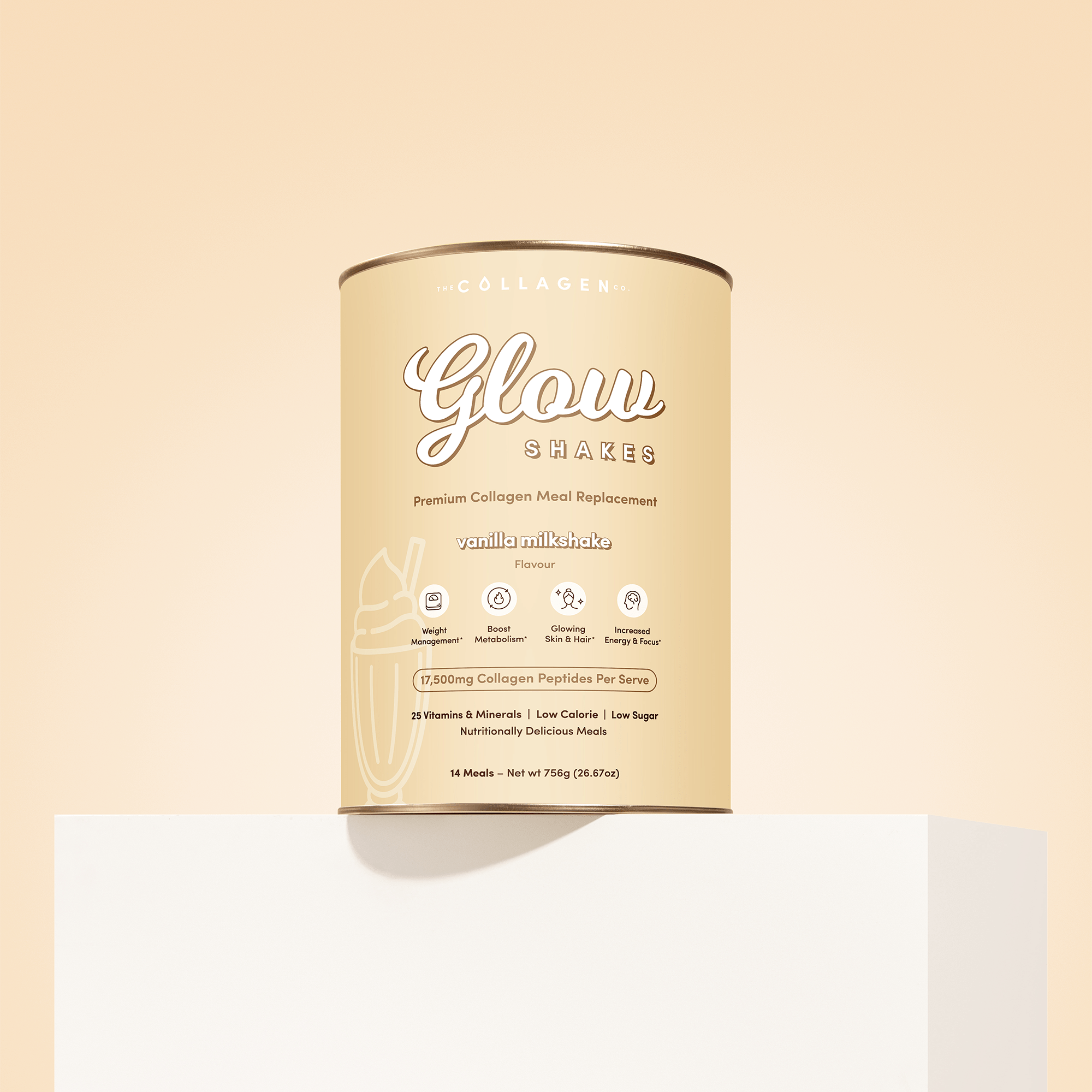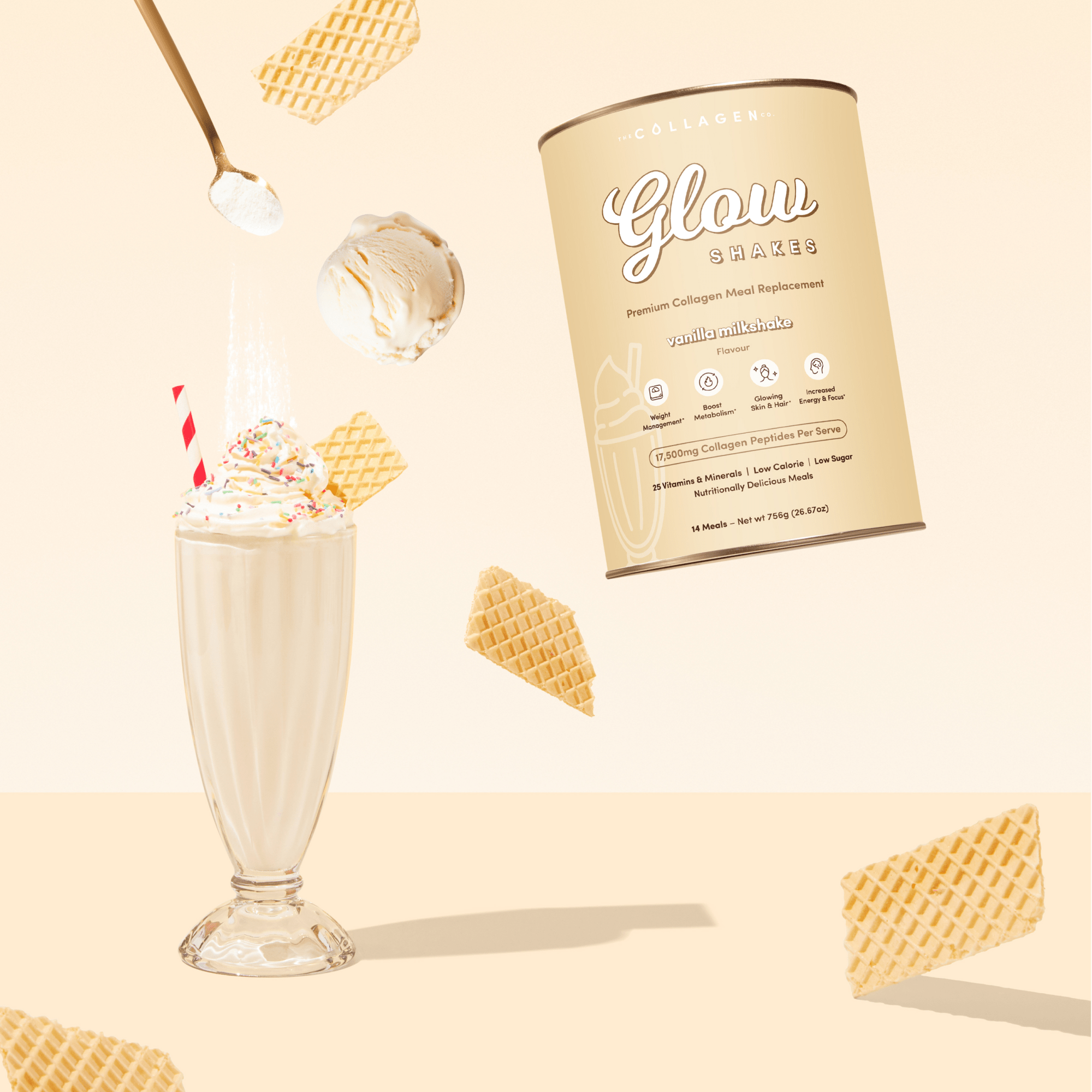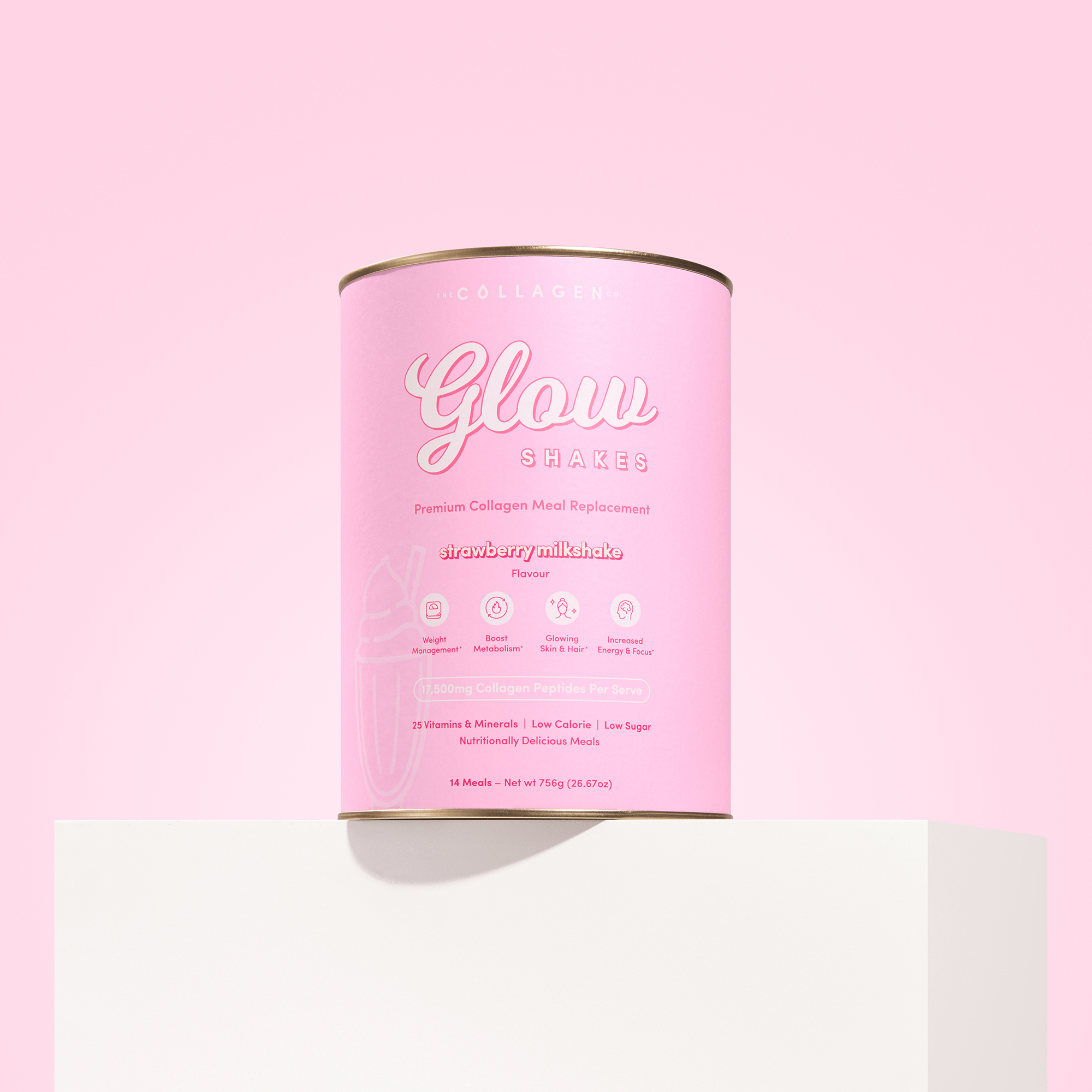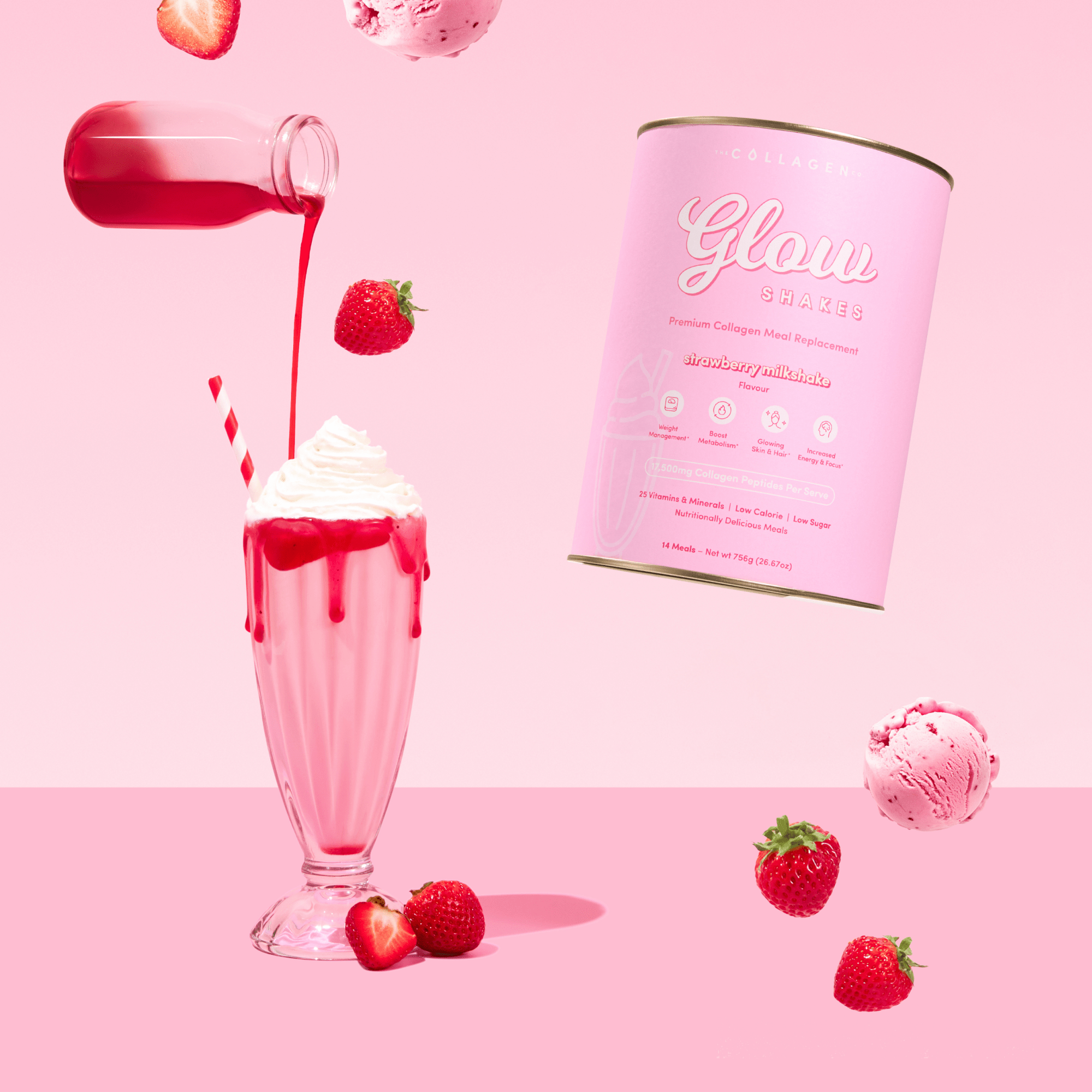Collagen Myths That Are Aging You Faster
Posted October 2025

Collagen might be one of the most talked-about supplements in beauty and wellness. But type it into Google and you’ll find a mixed bag: glowing testimonials, skeptical think pieces, and plenty of confusion in between.
The truth? Collagen isn’t a miracle cure — but it’s definitely not snake oil either. The real issue is myths.
Following the wrong advice (wrong type, wrong timing, unrealistic expectations) doesn’t just waste money. It can actually keep you from getting results that matter for your skin, hair, nails, gut, and even your joints.
Let’s bust the biggest myths with real science.
Myth 1: “Collagen is too big to be absorbed.”
You’ve probably heard this one before: the claim that collagen molecules are too large to get through the gut wall, so supplements don’t work.
Here’s the reality: whole collagen fibres are too big. But modern, high-quality collagen supplements (we’ll talk about where you can get these later!) aren’t made that way. They’re hydrolysed, which means they’re already broken down into short amino acid chains called peptides.
And these hydrolysed collagen peptides don’t all get digested further. Many, especially di- and tri-peptides like proline-hydroxyproline, pass into your bloodstream intact. Clinical studies have tracked them within hours of ingestion, showing up in skin, cartilage, and connective tissue. Once there, they act as messengers, prompting fibroblasts to make more collagen in skin, chondrocytes to support cartilage, and even helping reinforce the gut lining.
Takeaway? Believe this myth and you’re missing out on peptides that could be rebuilding your skin’s elasticity, supporting joint comfort, keeping your gut barrier stronger, and even helping hair and nails grow healthier.
Myth 2: “All collagen types and sources are the same.”
Not quite. Collagen isn’t one-size-fits-all — and where it comes from does matter.
-
Marine collagen: Dominated by type I, with slightly smaller peptides on average. It’s been widely studied for skin hydration, elasticity, and fine lines, and it’s pescatarian-friendly.
-
Bovine collagen: Naturally rich in type I and III (the ones that support skin, hair, nails, and connective tissue). Once hydrolysed, its peptides don’t stay “bovine”; instead, they act as signals that stimulate fibroblasts to produce all 3 major types of collagen in the body. That’s why research connects bovine collagen to both beauty benefits and joint support.
-
Chicken collagen: Contains type II in its raw form, often marketed for joint support. Less frequently found than marine or bovine collagen.
And let’s be real — your dietary preferences matter just as much as the science. Bovine may be the most versatile, marine is ideal for pescatarians, and religious or allergen considerations can narrow your choices.
Takeaway? Collagen isn’t interchangeable. Believe this myth, and you risk picking a source that doesn’t match your needs, which may mean missing out on firmer skin, smoother joints, stronger nails, or simply a supplement that fits your lifestyle.
Curious about the differences between bovine and marine collagen in more detail? We’ve broken it down here so you can choose the source that works best for your goals.
Myth 3: “You only need biotin for hair, collagen for skin.”
This one’s catchy, but it’s too simplistic.
Collagen doesn’t stop at the skin. The same amino acids that keep your face firm — glycine, proline, hydroxyproline — are needed for hair follicles to build keratin, and for nails to resist brittleness. They also play a role in keeping your gut lining strong and connective tissues healthy.
And biotin isn’t “just for hair.” It’s a coenzyme that helps your body metabolise amino acids and fatty acids efficiently. In other words, collagen supplies the building blocks, while biotin helps you use them effectively.
That’s why smart formulations combine the two.
Case in point: The Collagen Co’s Premium Collagen Peptides, which deliver hydrolysed collagen, vitamin C, and biotin in one.
Takeaway? If you split hair and skin into separate camps, you’re missing the bigger picture. Collagen supports both, and with biotin, your body gets even more out of it.
Myth 4: “Timing doesn’t matter.”
It’s true that collagen works over the long run, no matter when you take it. But saying timing doesn’t matter at all oversimplifies things.
Here’s the nuance: collagen synthesis relies on enzymes like prolyl hydroxylase and lysyl hydroxylase. They need vitamin C as a cofactor to stabilise new fibres. Without vitamin C, the process stalls. That’s why pairing collagen with vitamin C, either from food or included in your supplement, makes a difference.
Best practice? Take it consistently, and tie it to something you already do daily — your smoothie, your morning routine, or an afternoon pick-me-up. That way, you’ll actually stick to it, which is where the results come from.
Takeaway? Believe timing never matters, and you’ll risk limiting results. Get it right, with consistency and vitamin C, and you set yourself up for firmer skin, stronger nails, and healthier connective tissue.
Myth 5: “You’ll see results in a week.”
Collagen works, but not overnight.
Skin turnover is slow. Most studies show visible improvements in elasticity, hydration, and fine lines after 8–12 weeks. Hair and nails take longer, closer to 16 weeks, because their growth cycles are slower. Joints and gut support may be felt earlier, but they’re also cumulative.
Expecting results in a week sets you up for disappointment — and sometimes quitting right before the benefits show.
Takeaway? Collagen isn’t a quick fix. Skip it too soon and you miss the long-game payoff: smoother skin, stronger hair and nails, more comfortable joints, and a healthier gut barrier.
Dive deeper into how long collagen takes to work in this article.
Your smart collagen supplementation checklist
- Skip the myths and stick with what actually works:
- Hydrolysed peptides only (not gelatin or whole collagen)
- Consistency (8–12 weeks minimum)
- Cofactors like vitamin C, zinc, and biotin
- Choose bovine or marine, depending on your goals and diet
- Keep expectations realistic: healthier skin, hair, nails, joints, and gut, not a total genetic reset
Bottom line?
Collagen works, but only if you do it right.
That means choosing hydrolysed peptides, pairing them with the right cofactors, and giving your body time to show results.
If you want an all-rounder, Premium Collagen Peptides deliver bovine collagen with vitamin C and biotin, a simple daily staple for skin, hair, and nails. Prefer pescatarian? Beauty Marine Collagen provides pure type I collagen from wild-caught fish, which has been studied for its benefits in hydration and elasticity.
Different sources, same goal: a body that feels stronger, skin that looks smoother, and hair and nails that stay resilient — backed by science, not myths.
